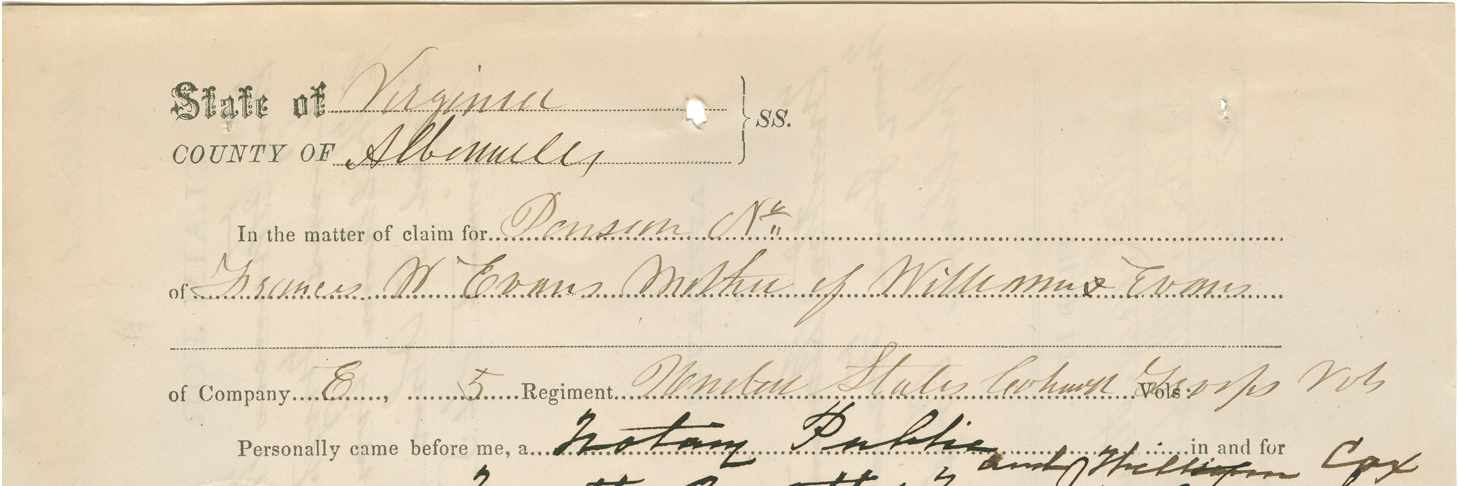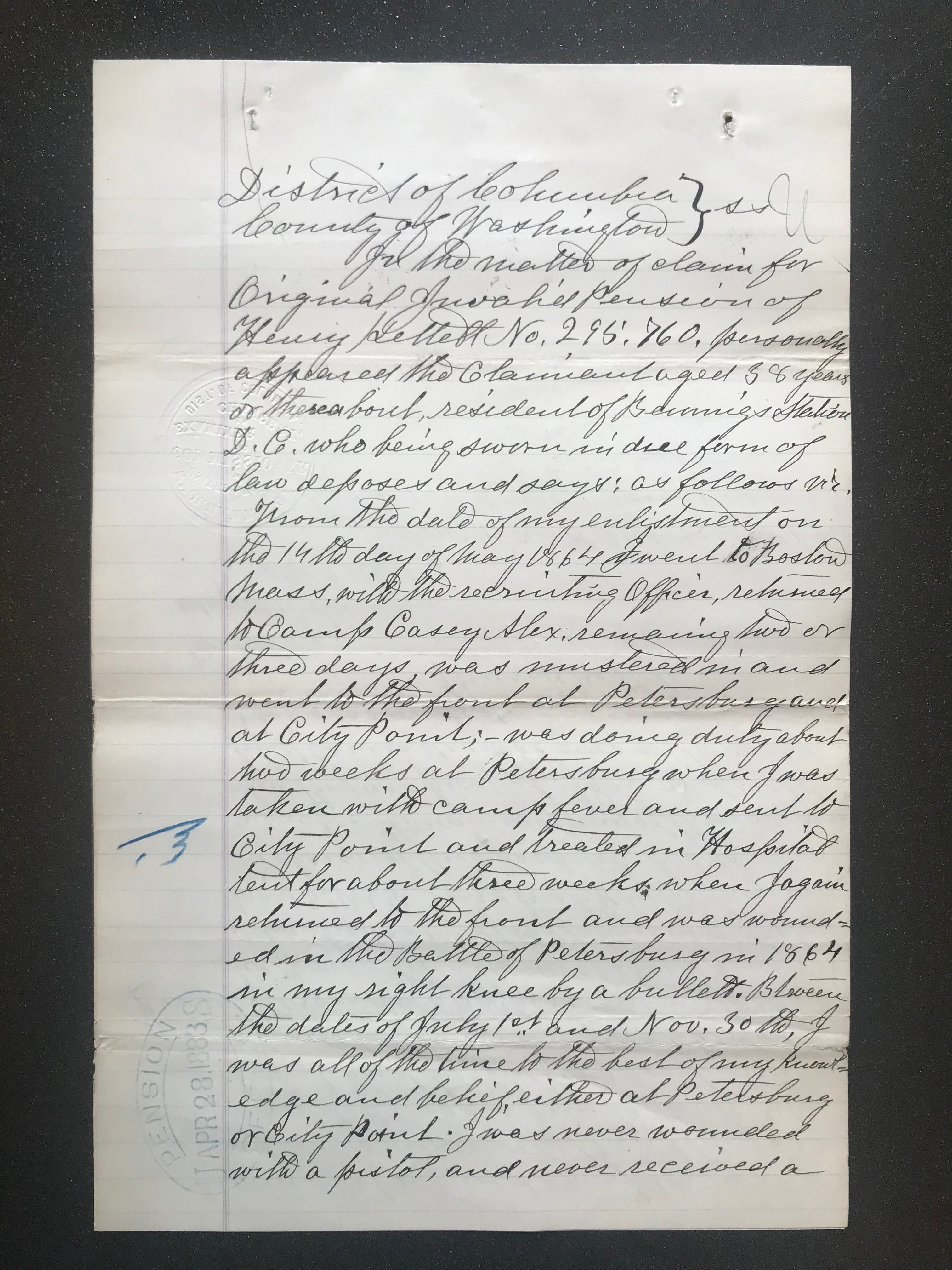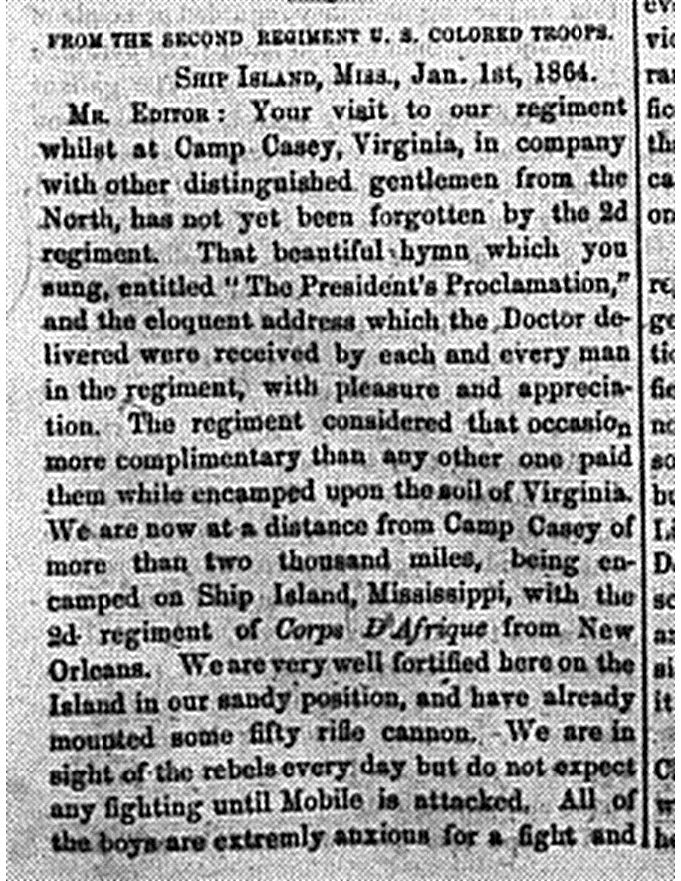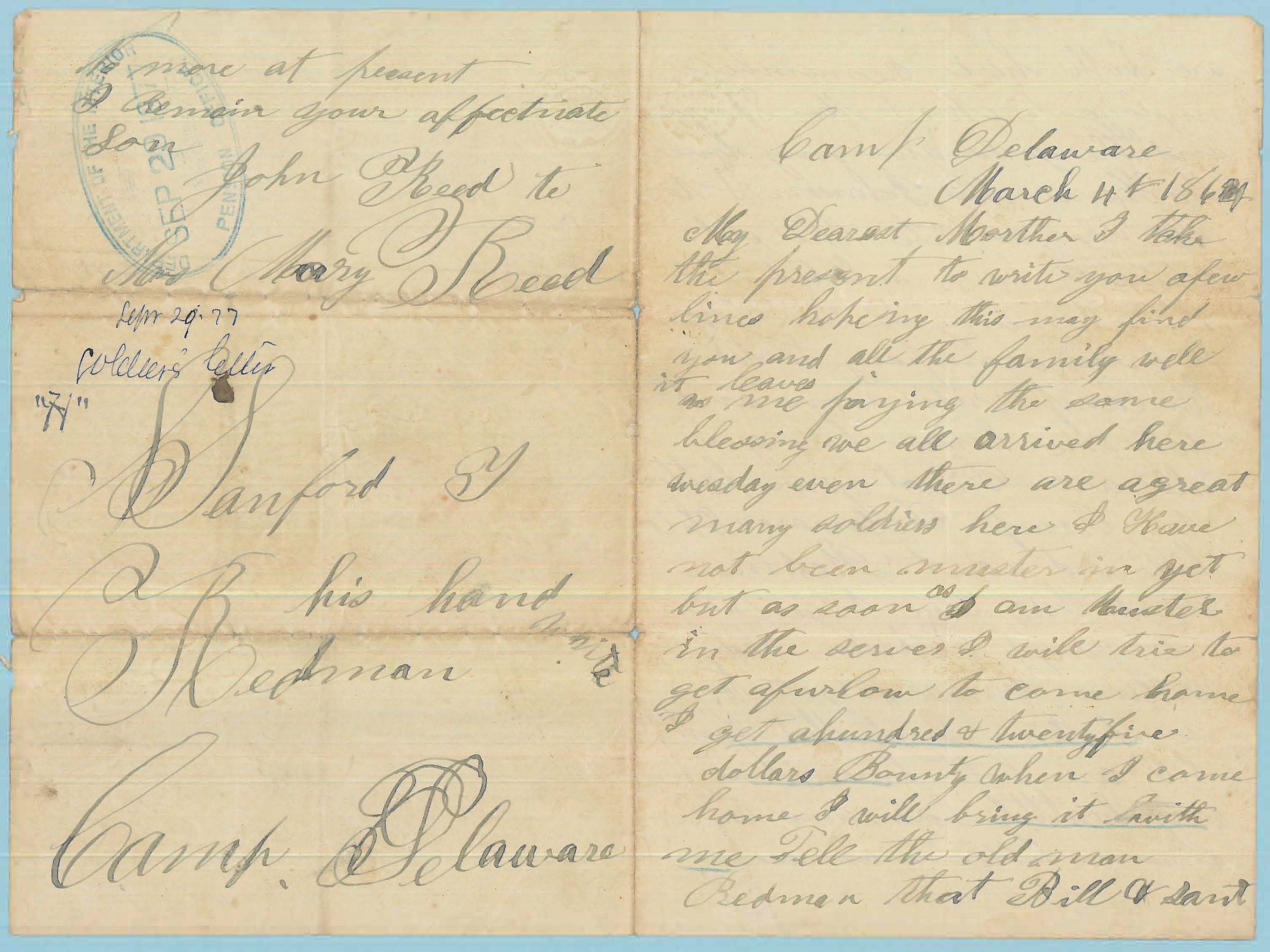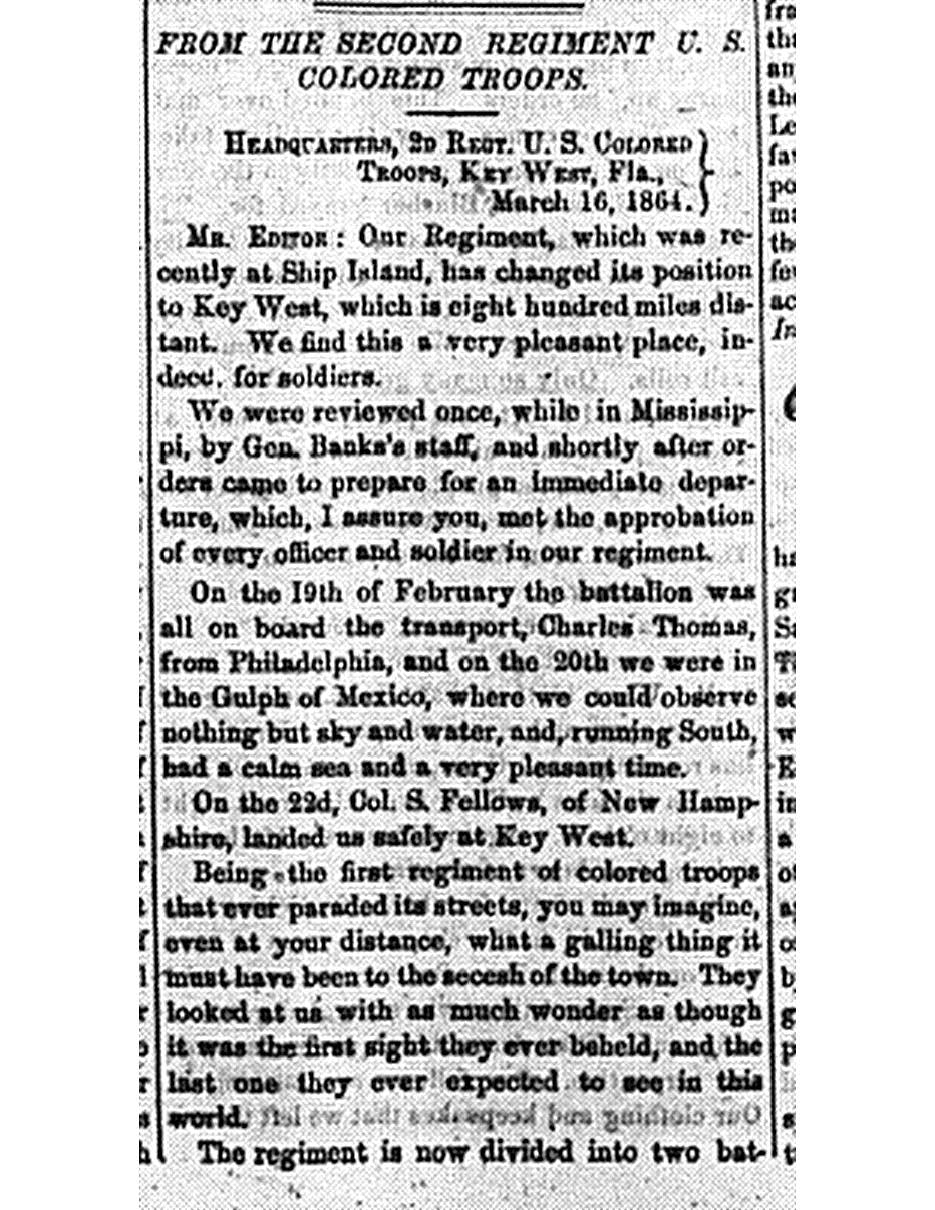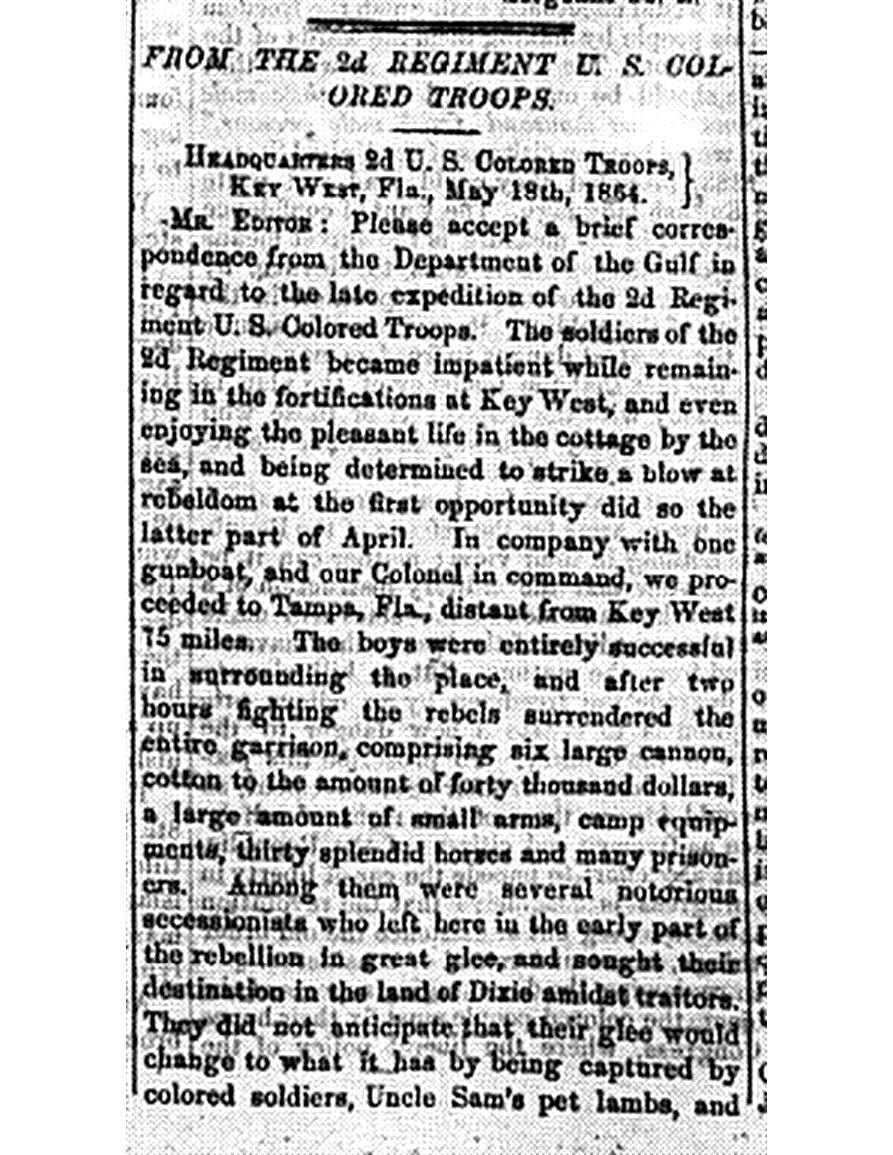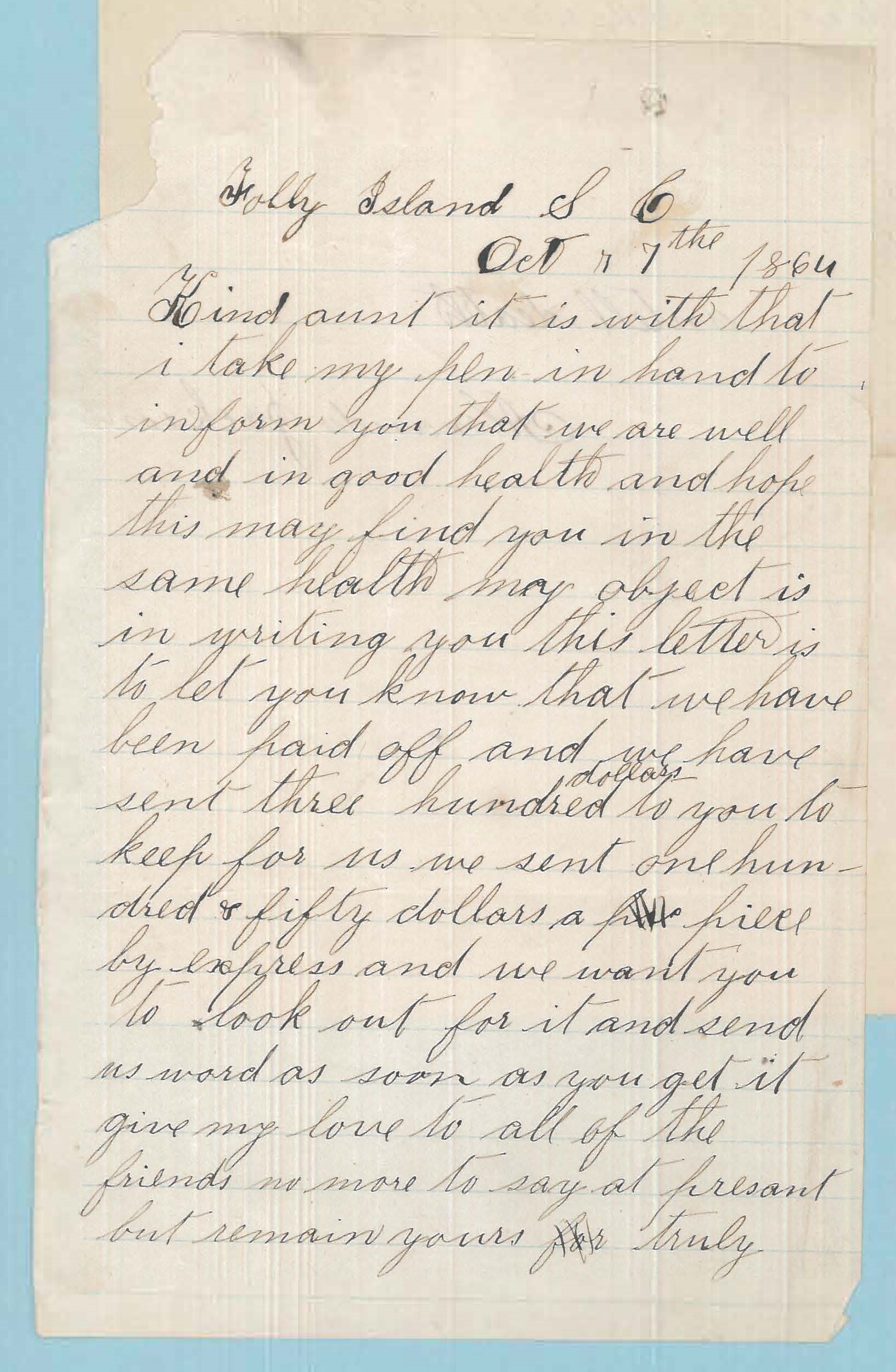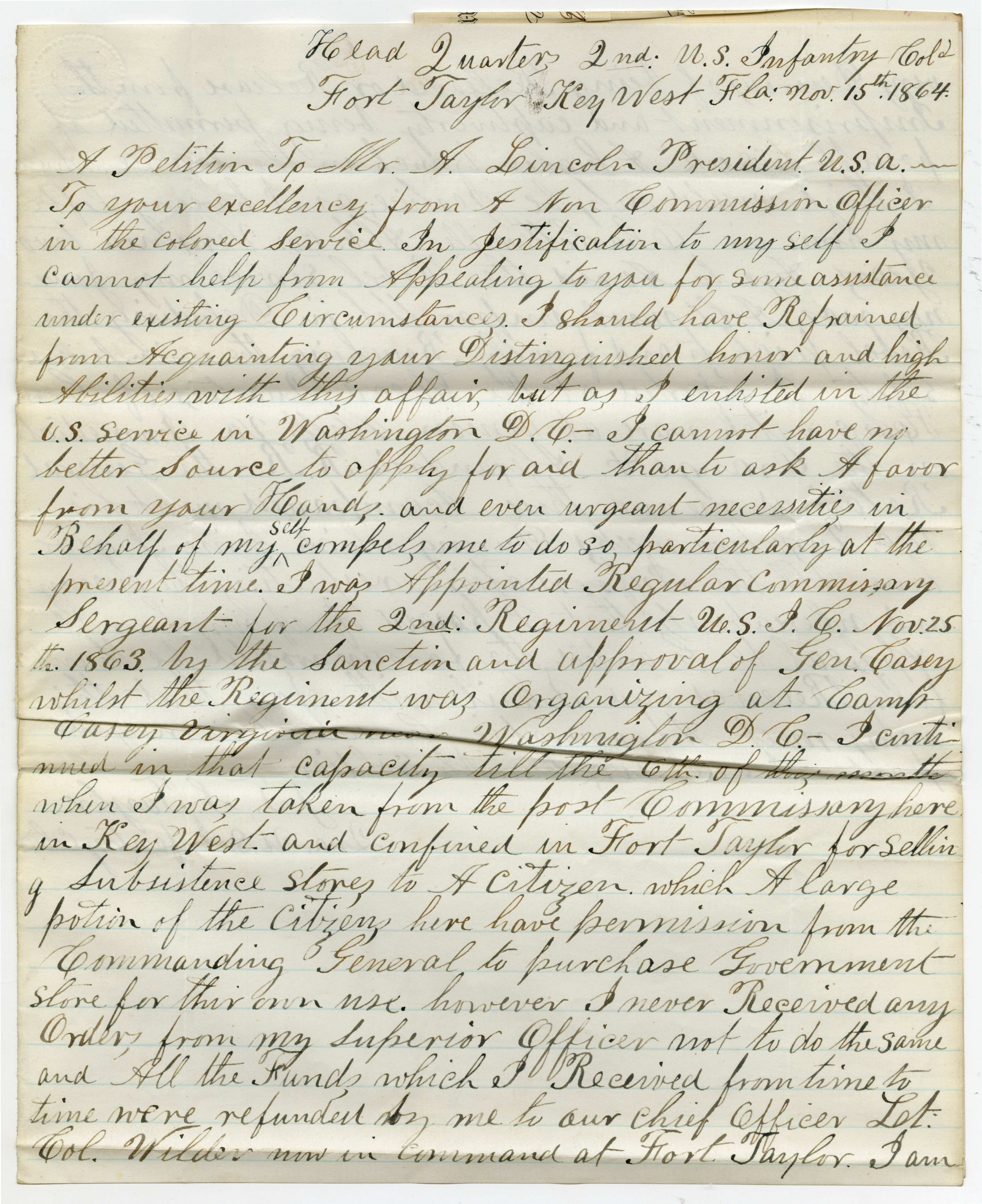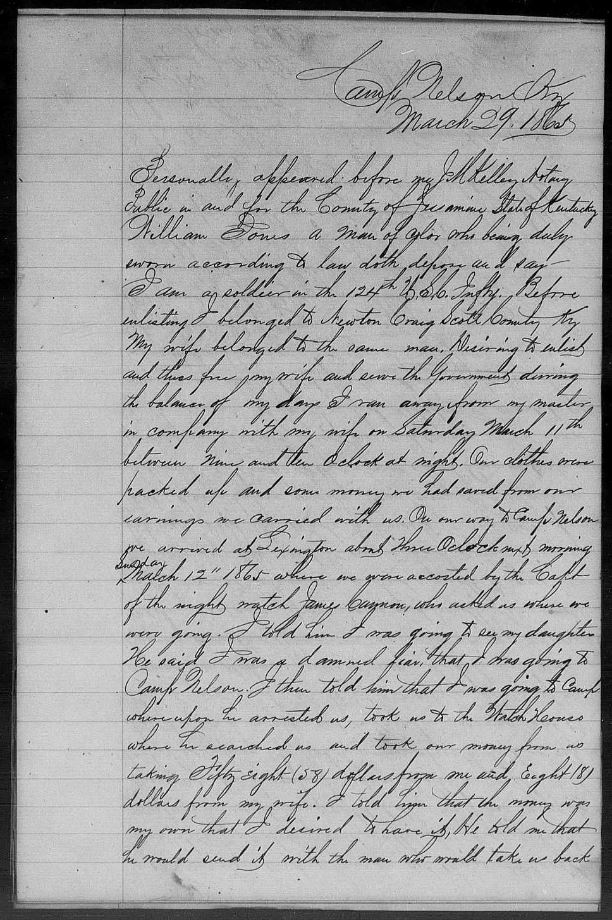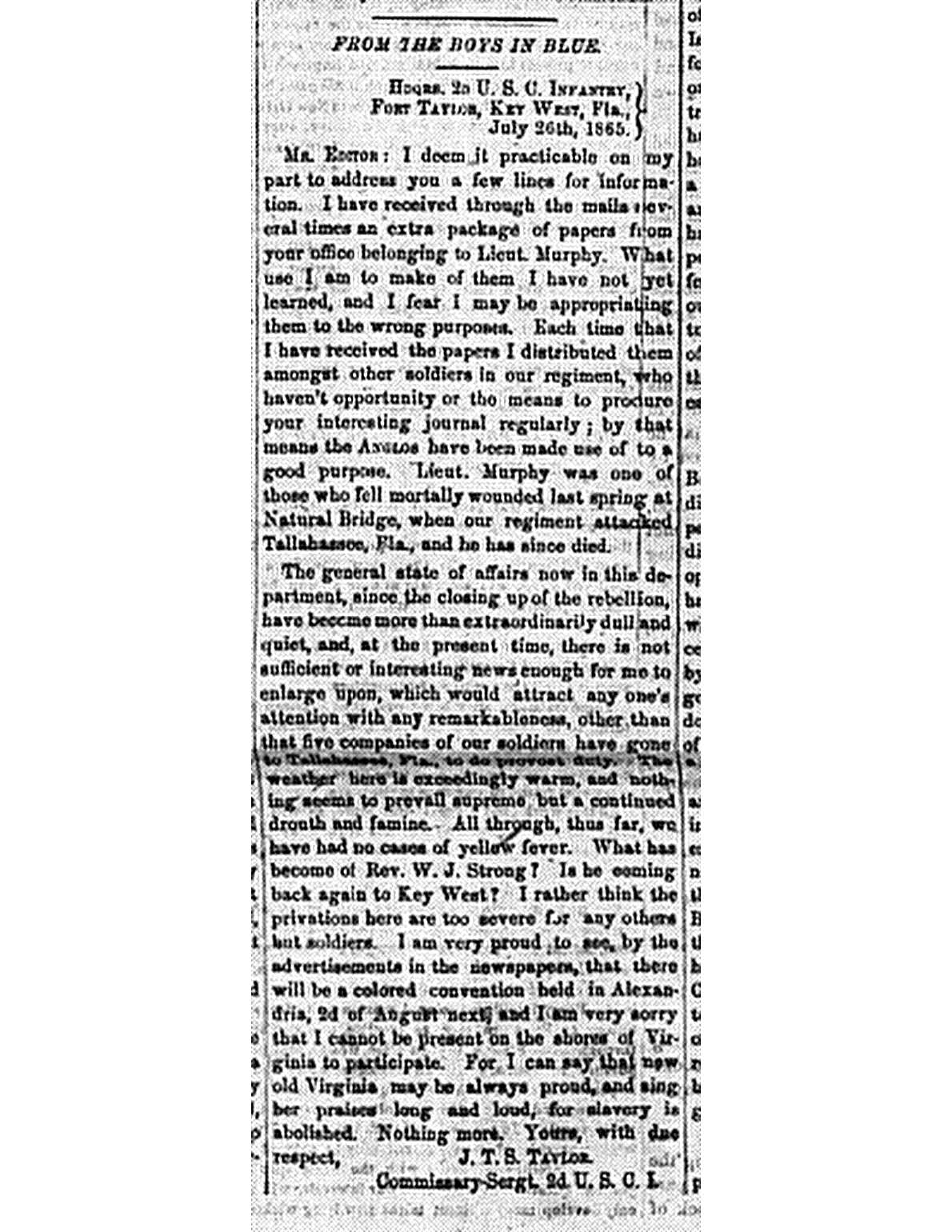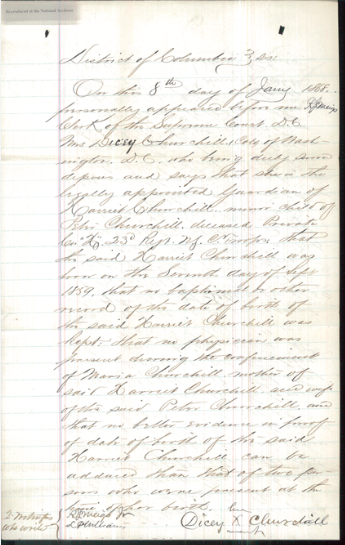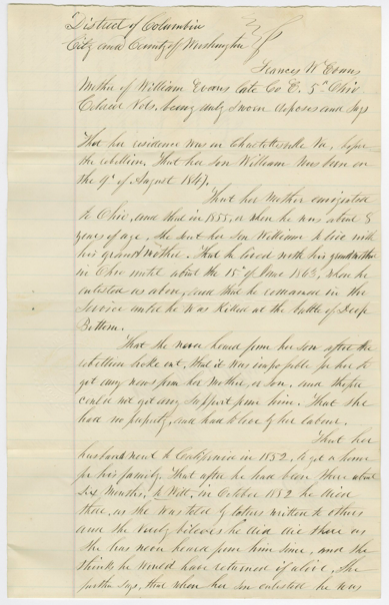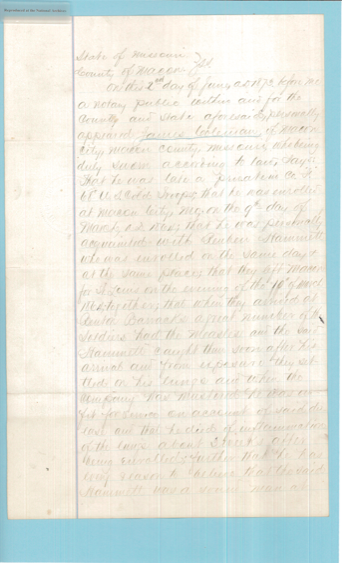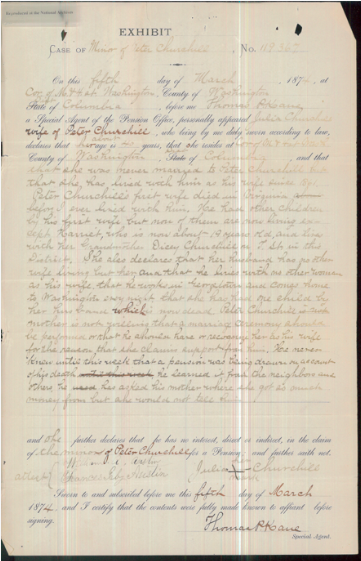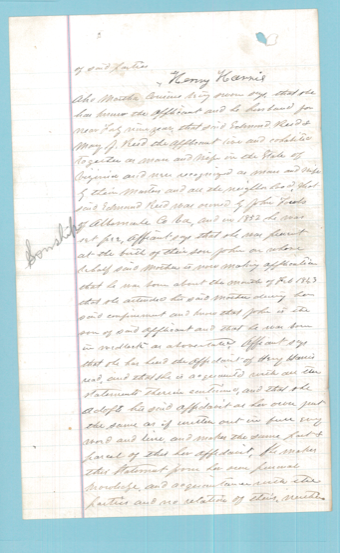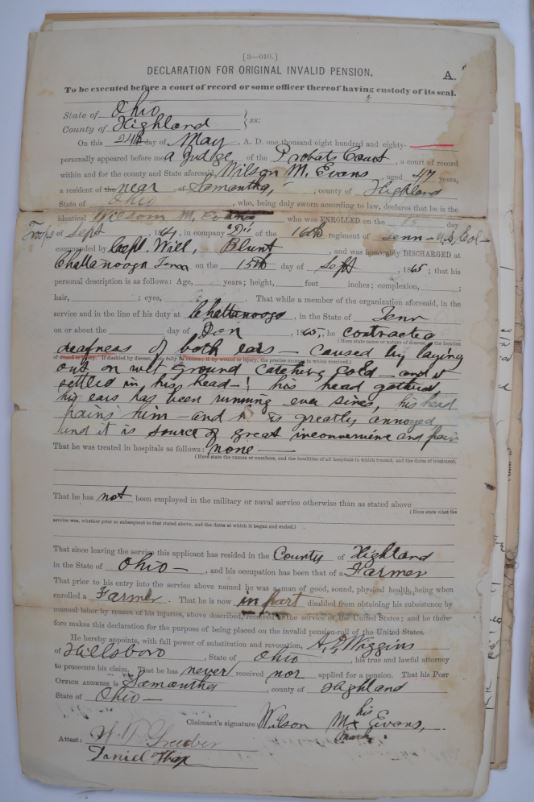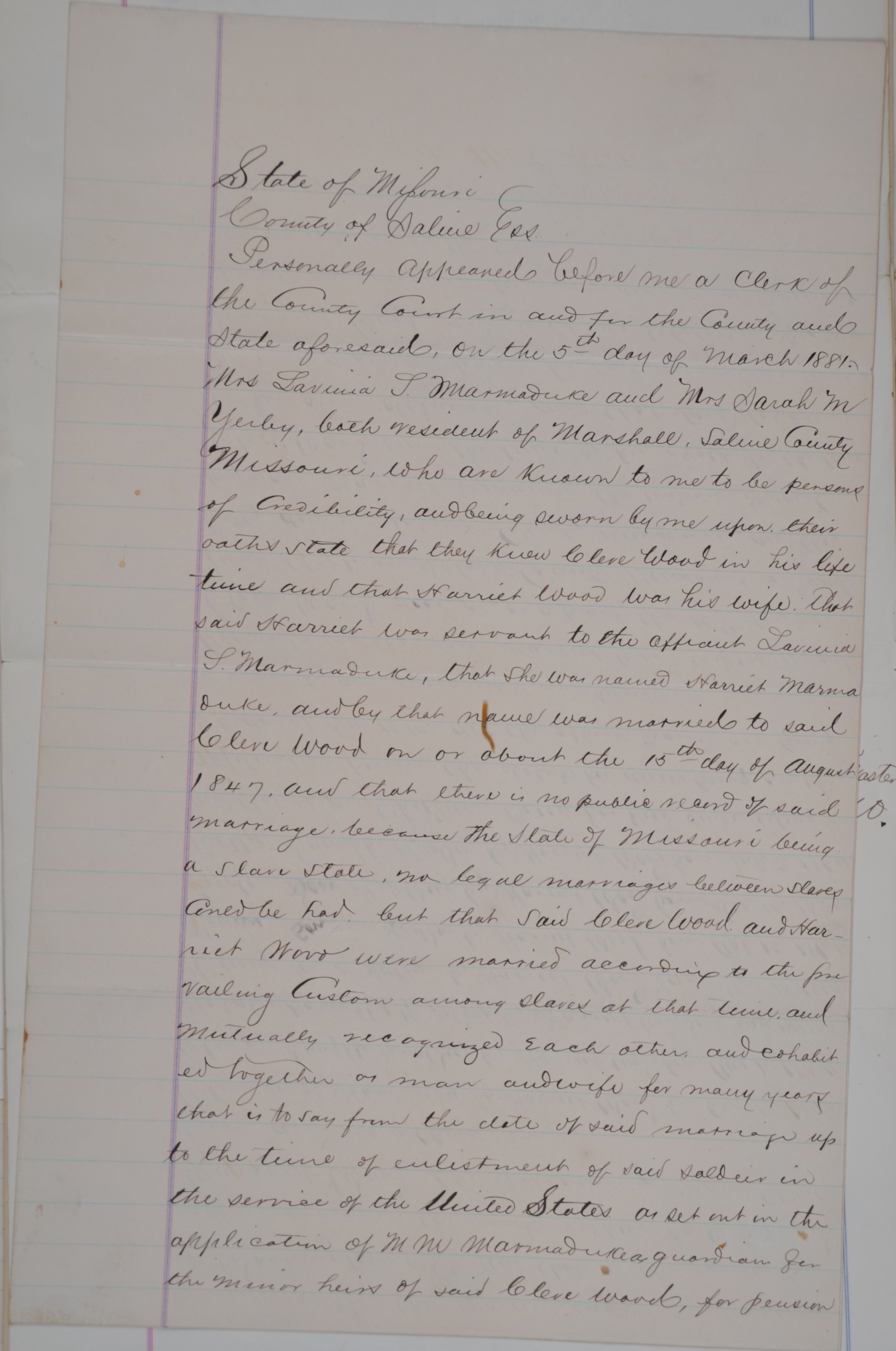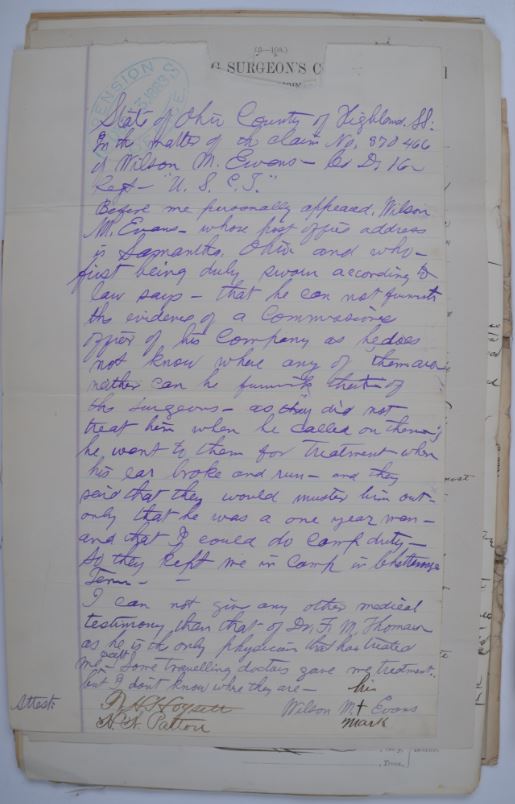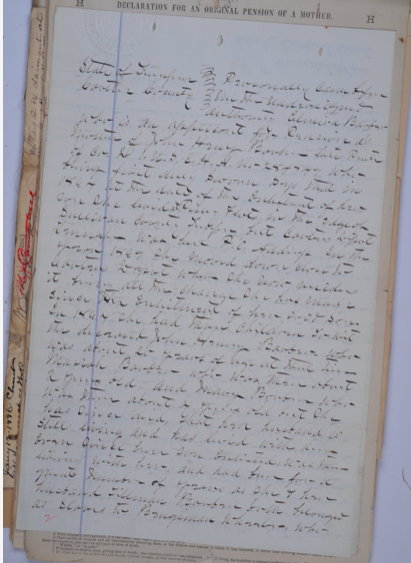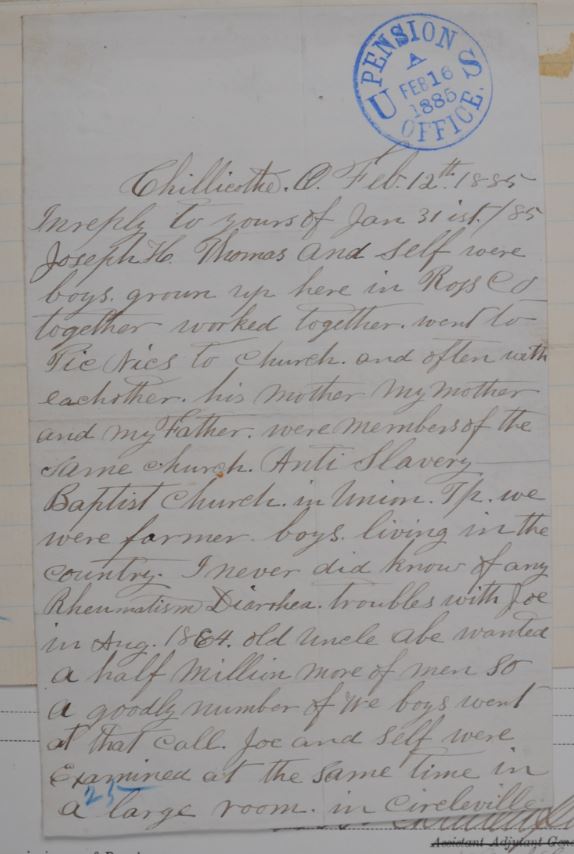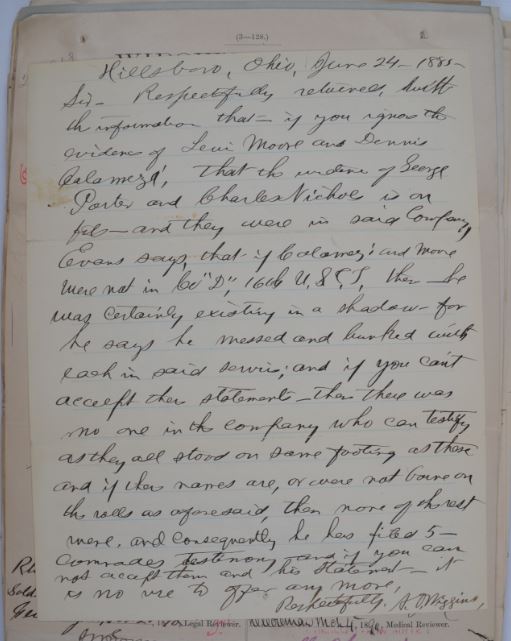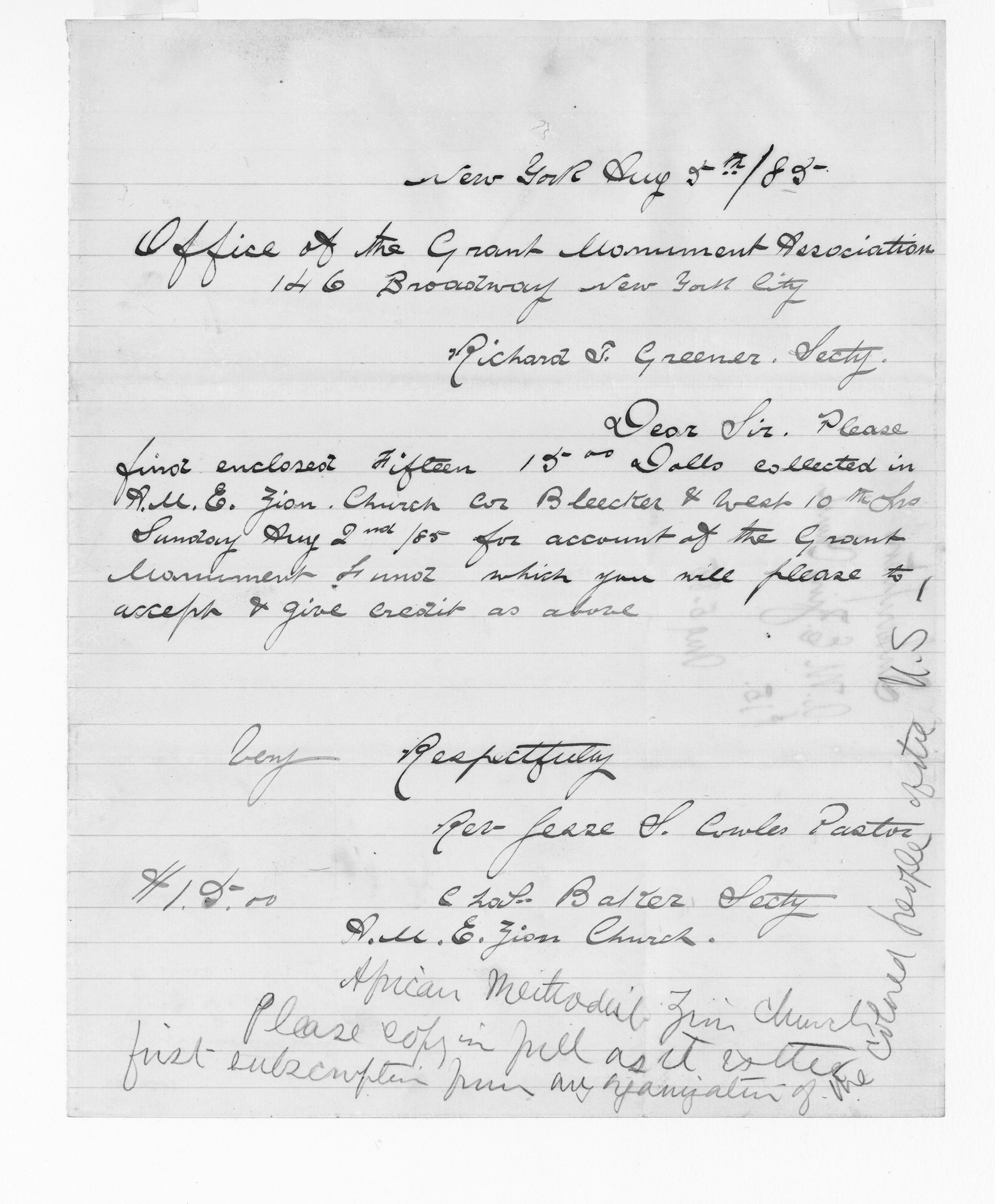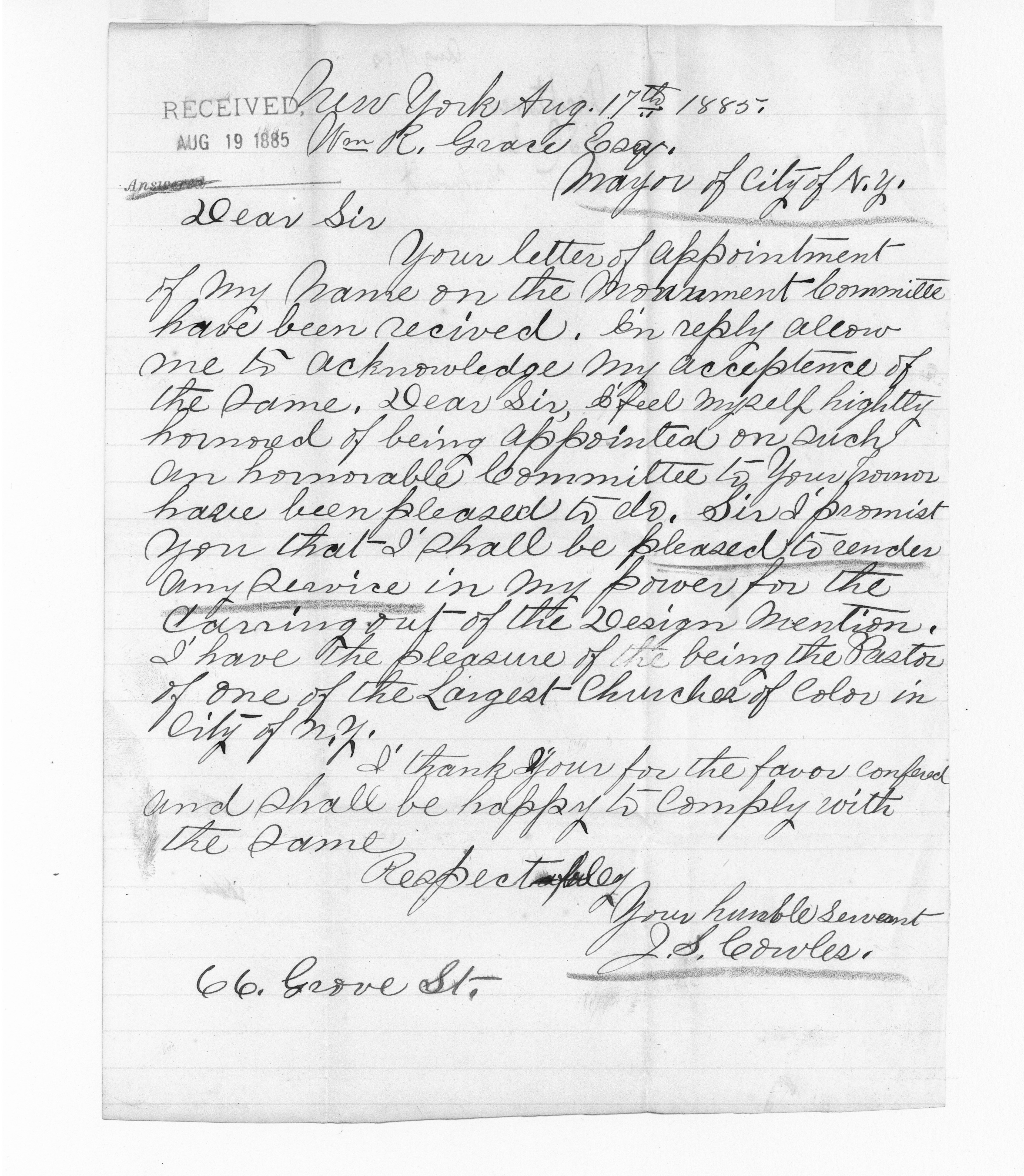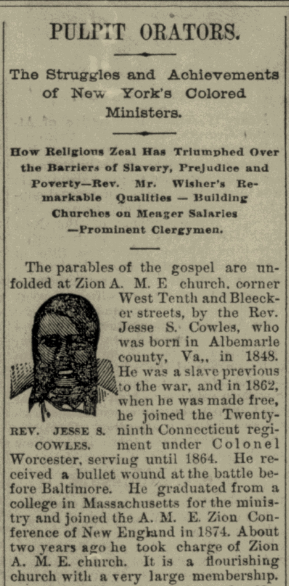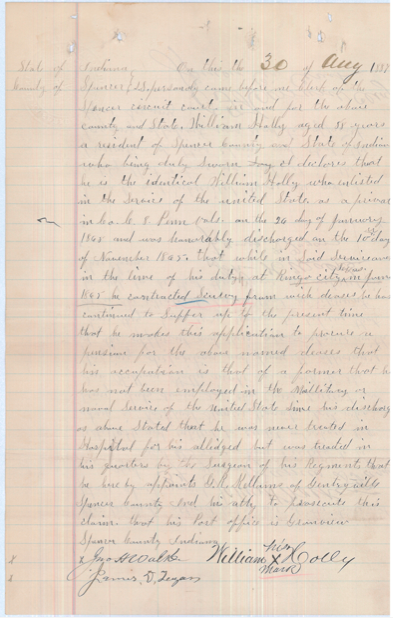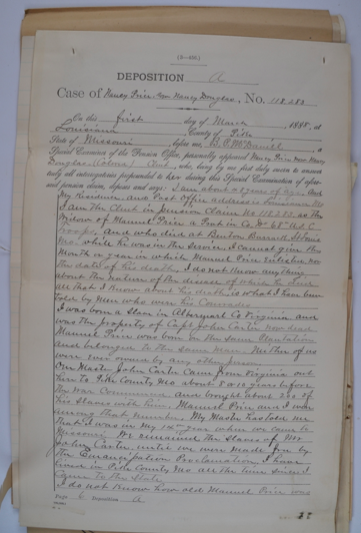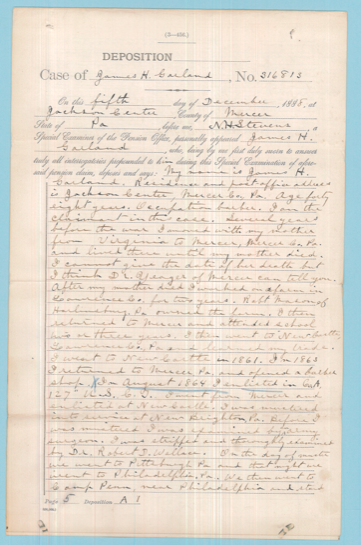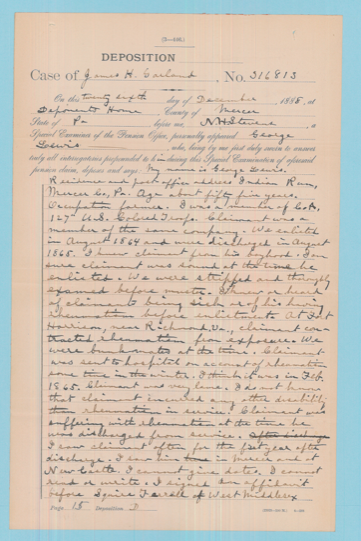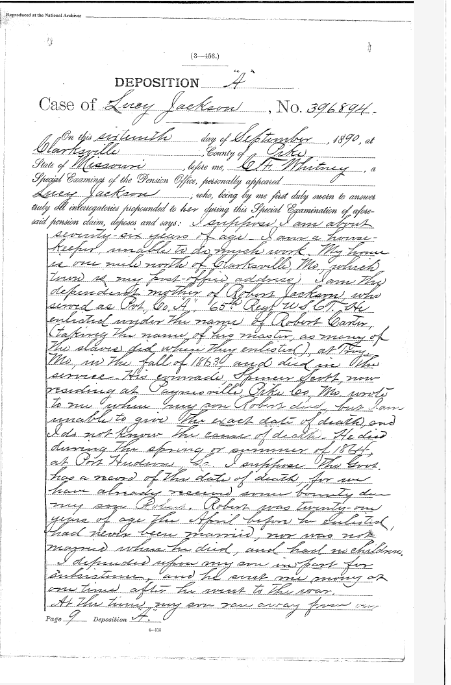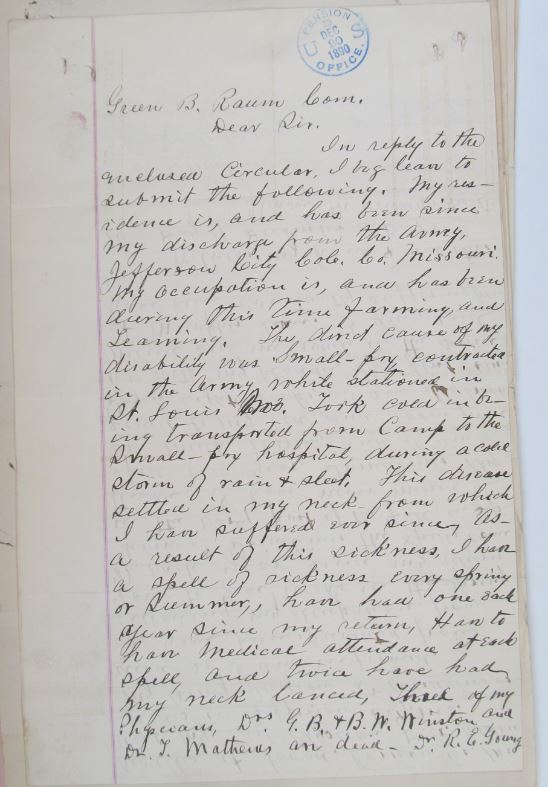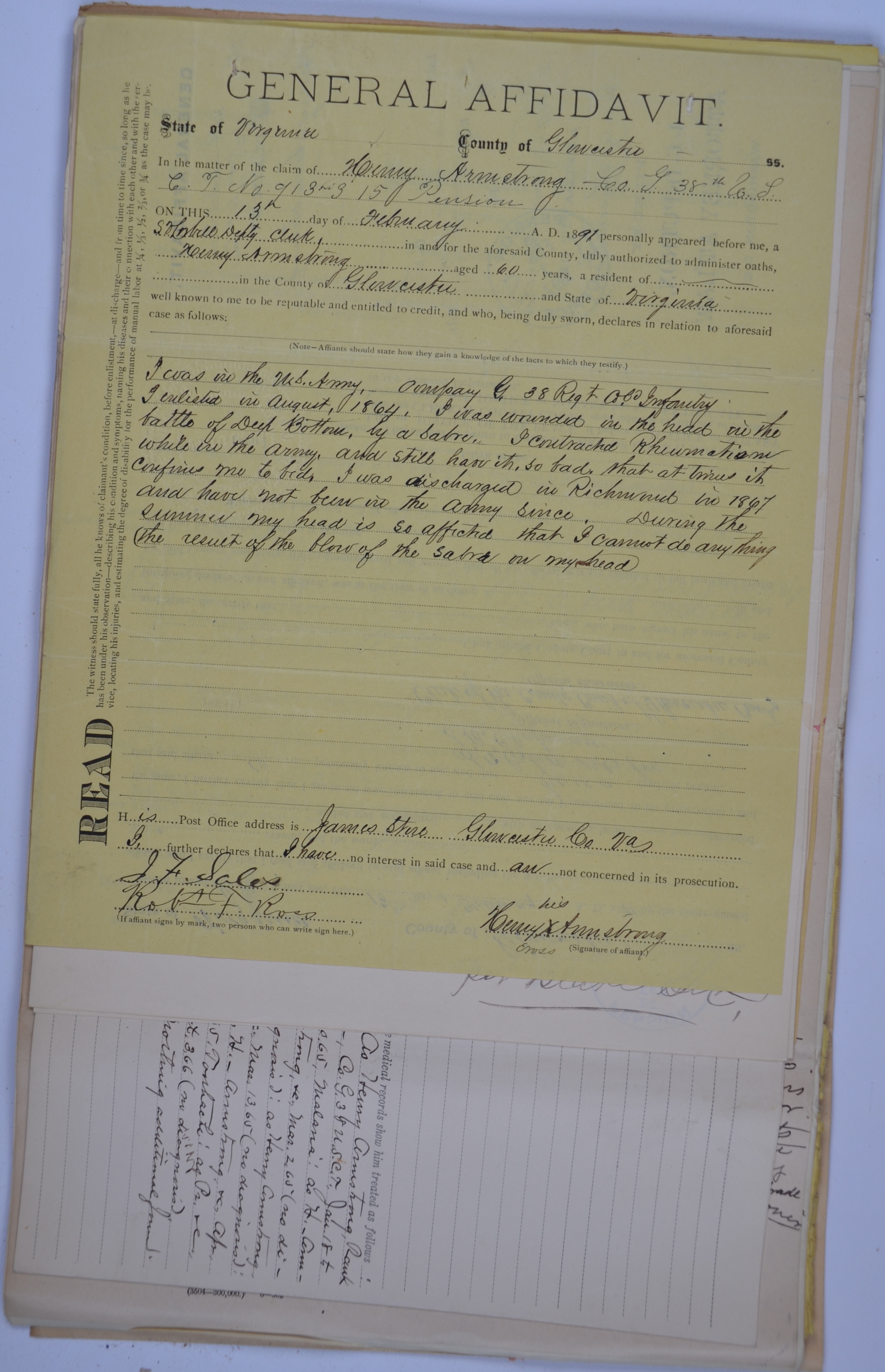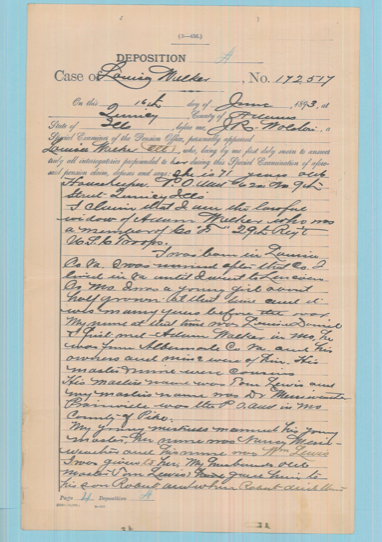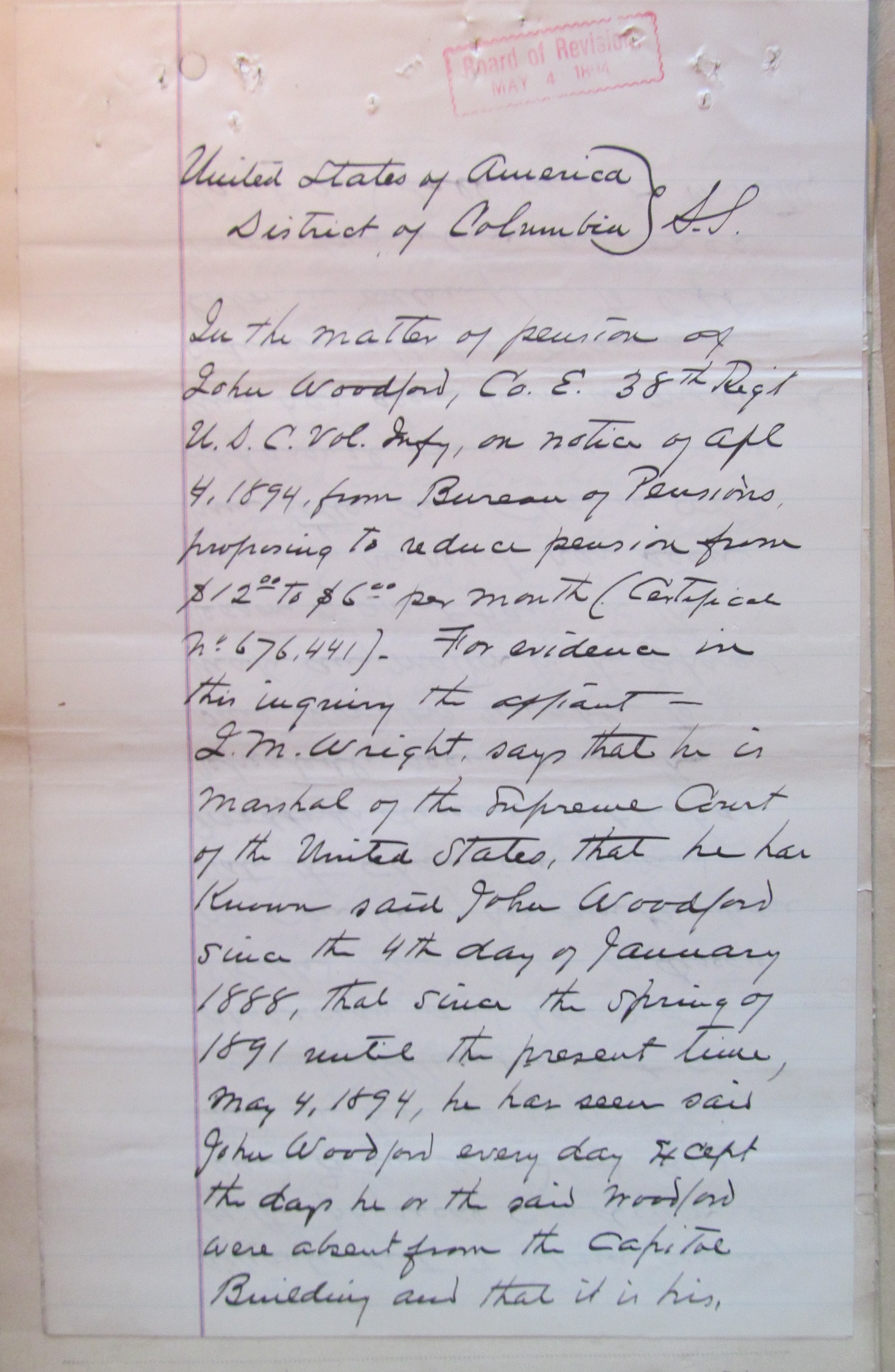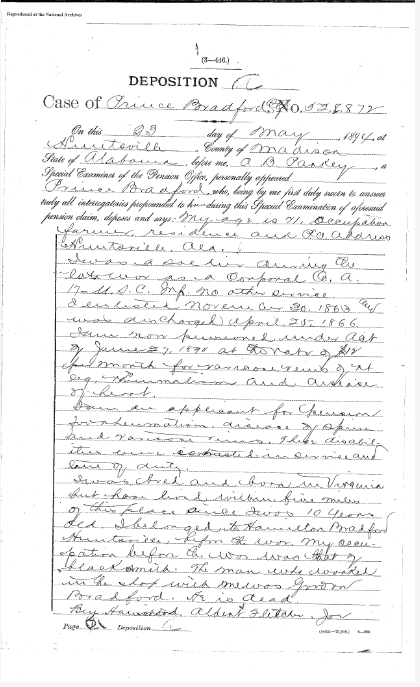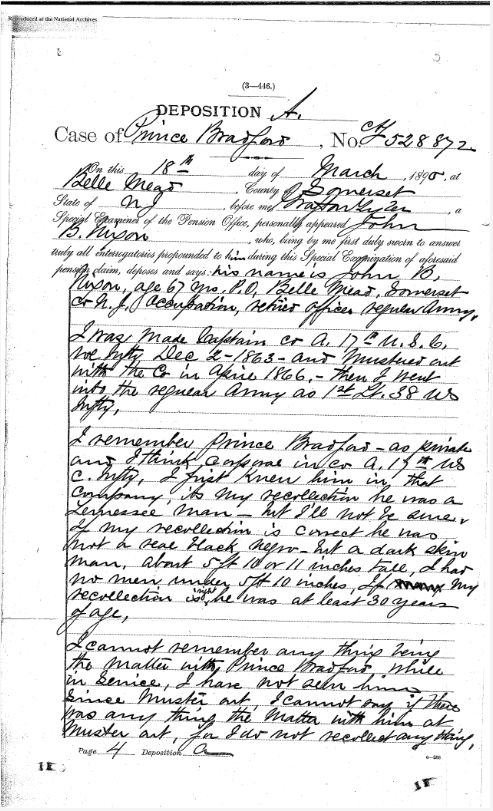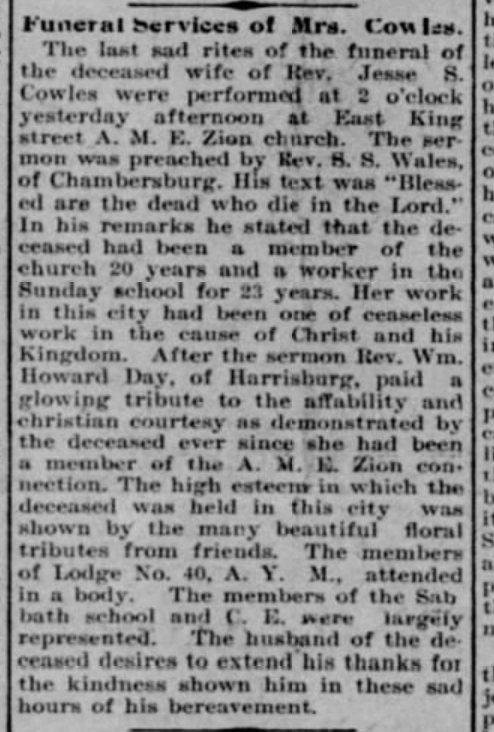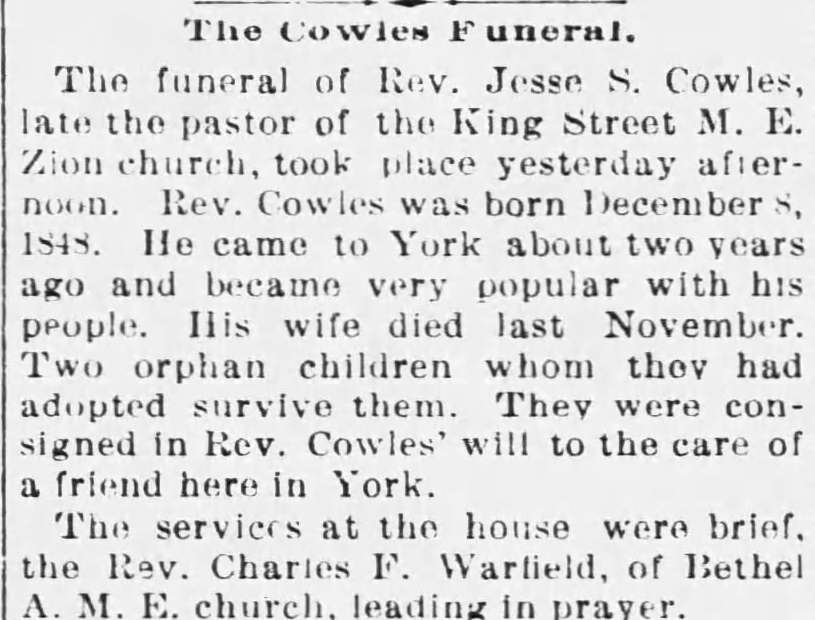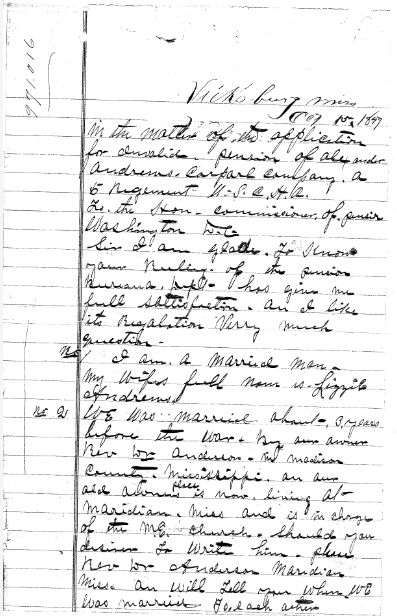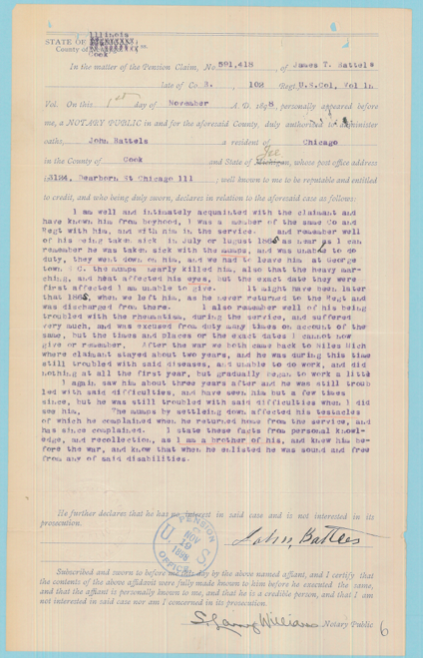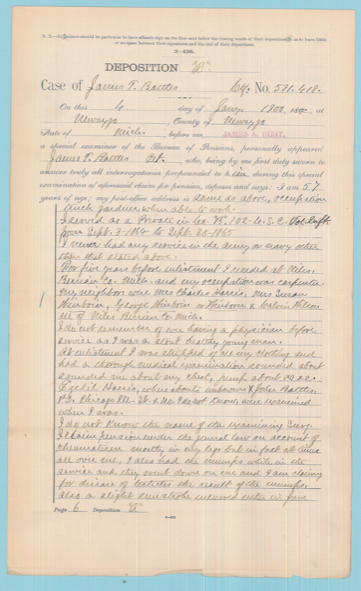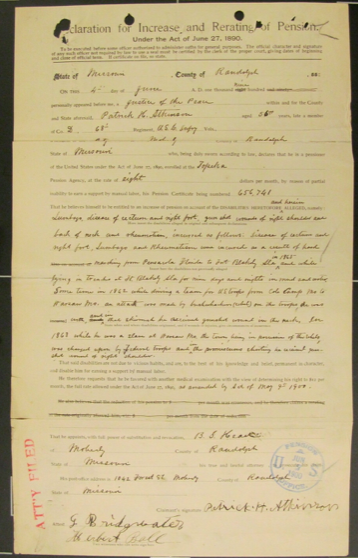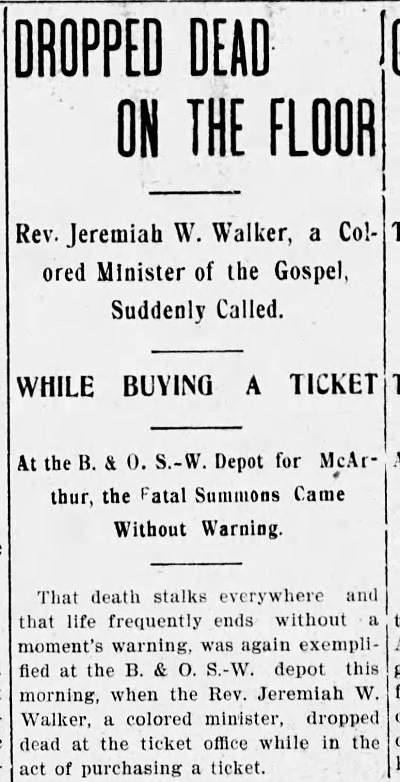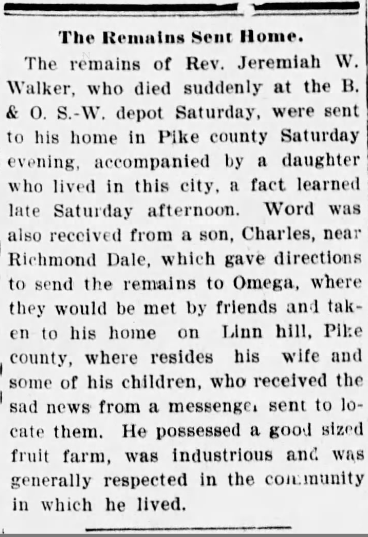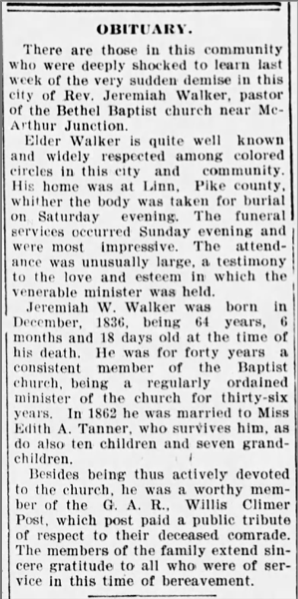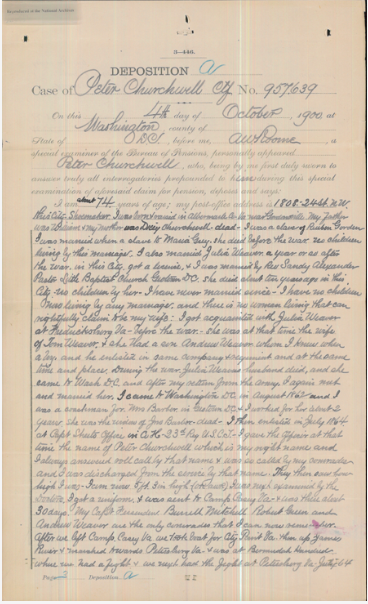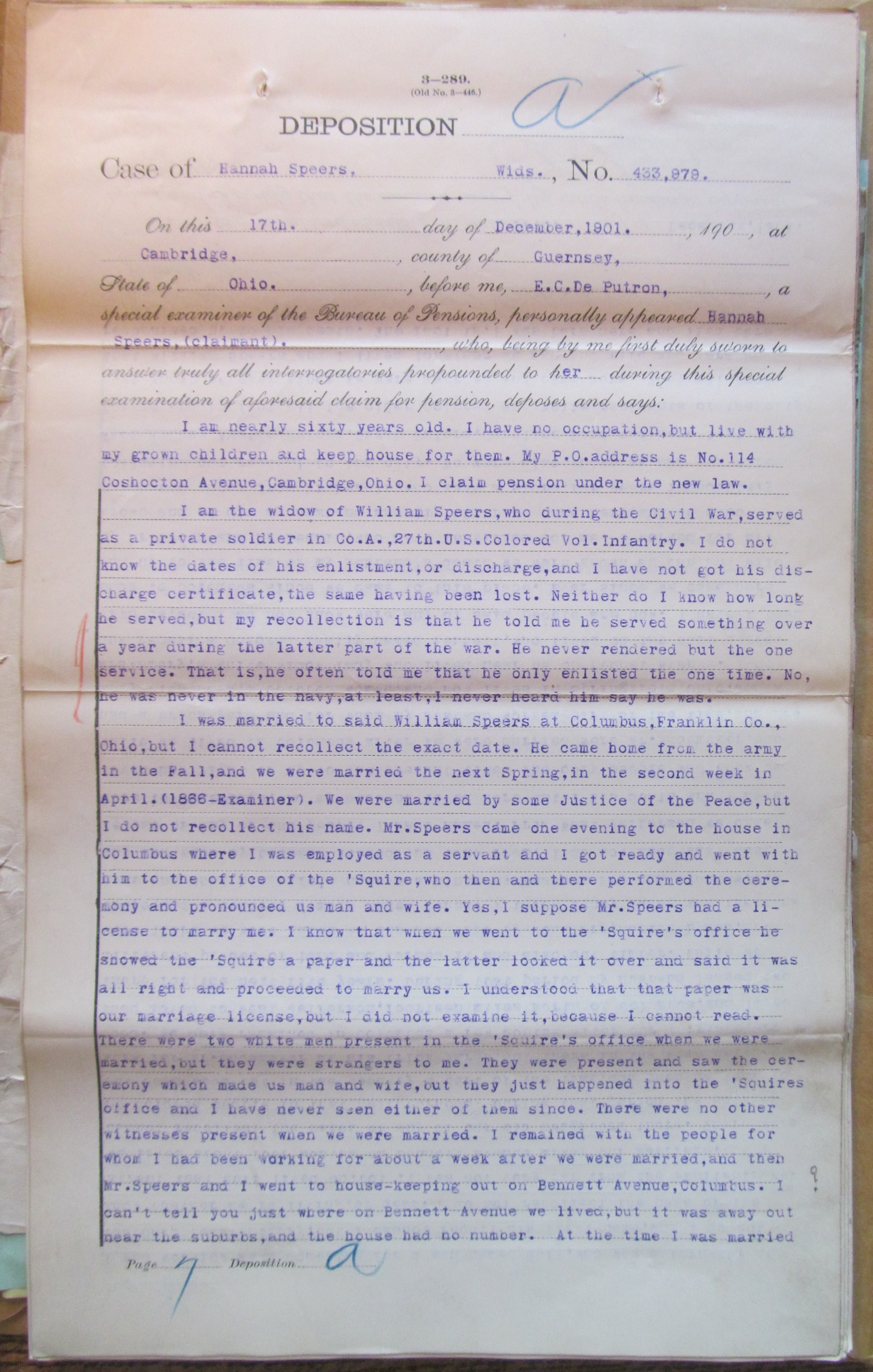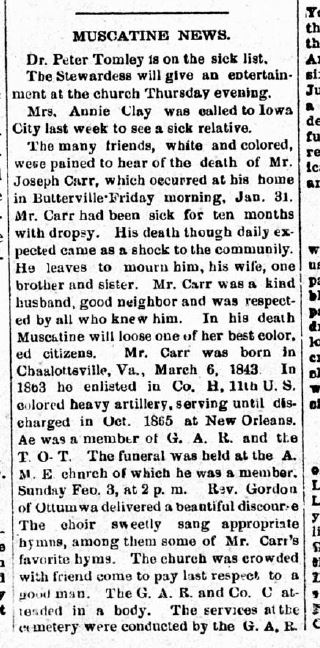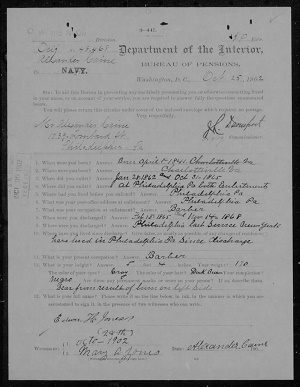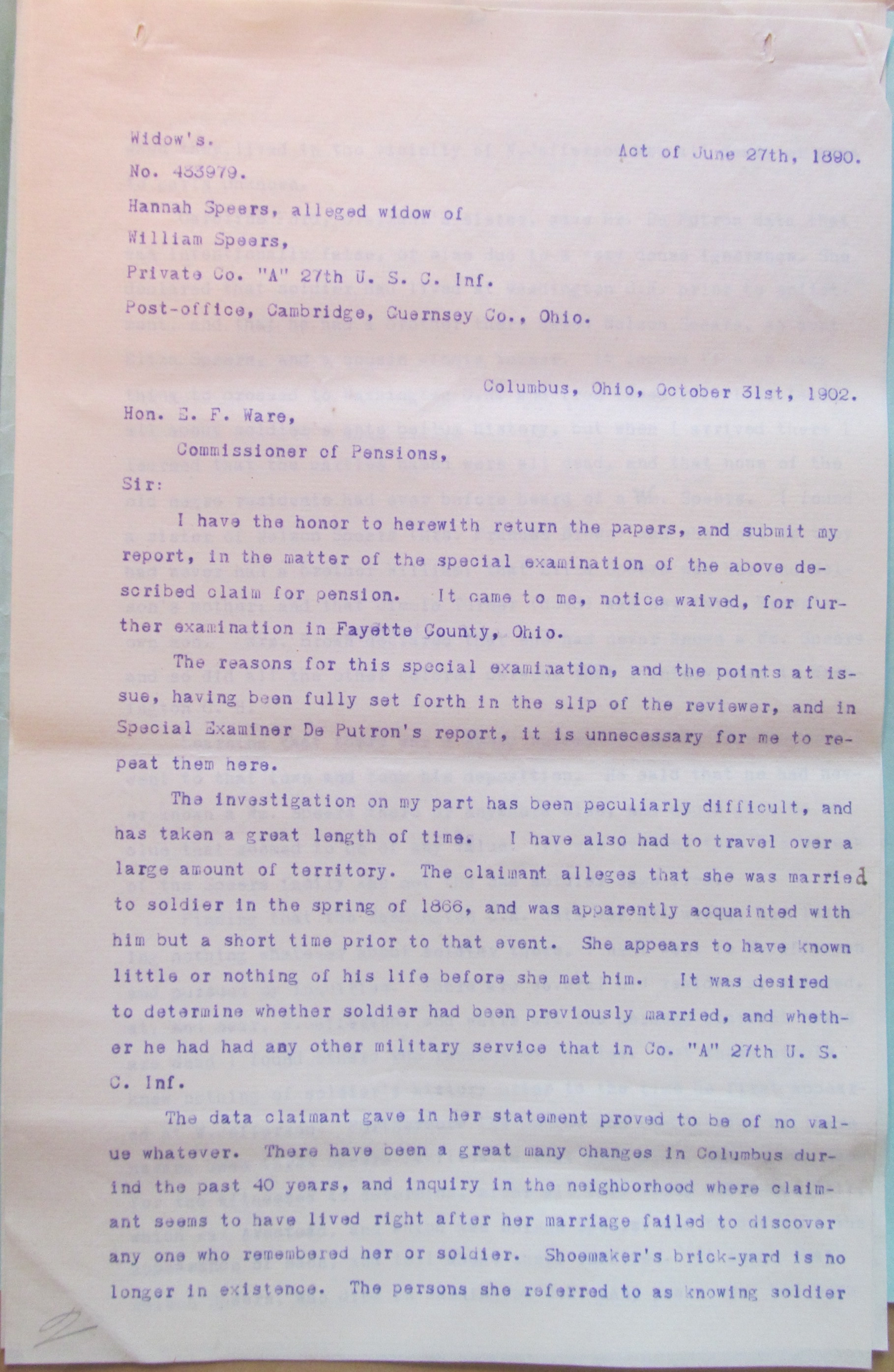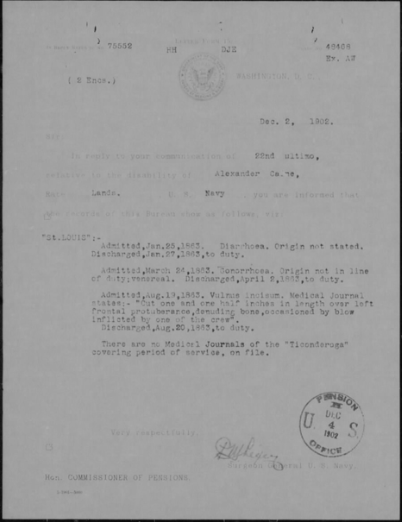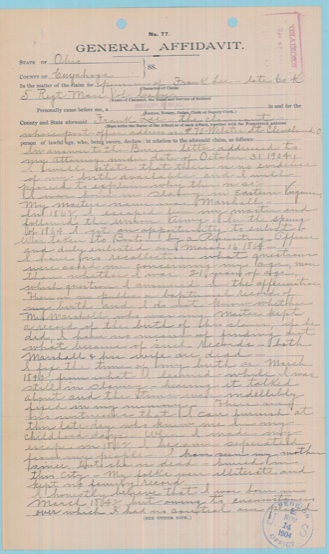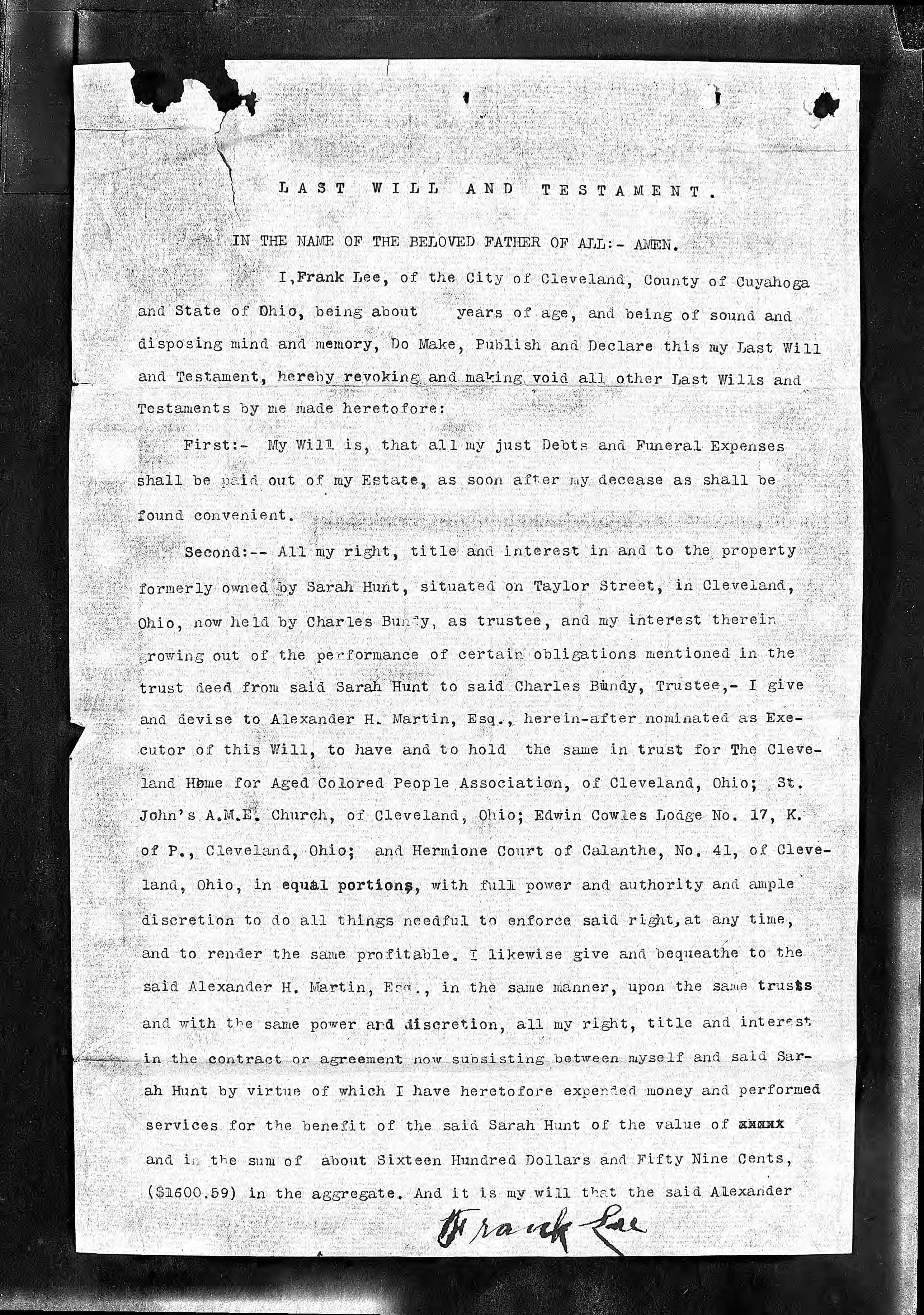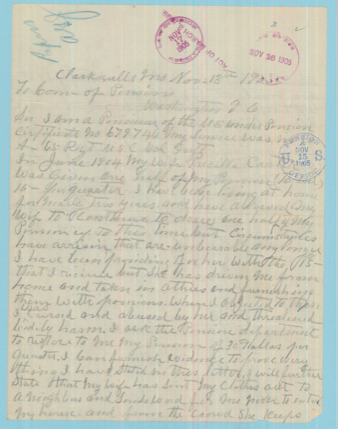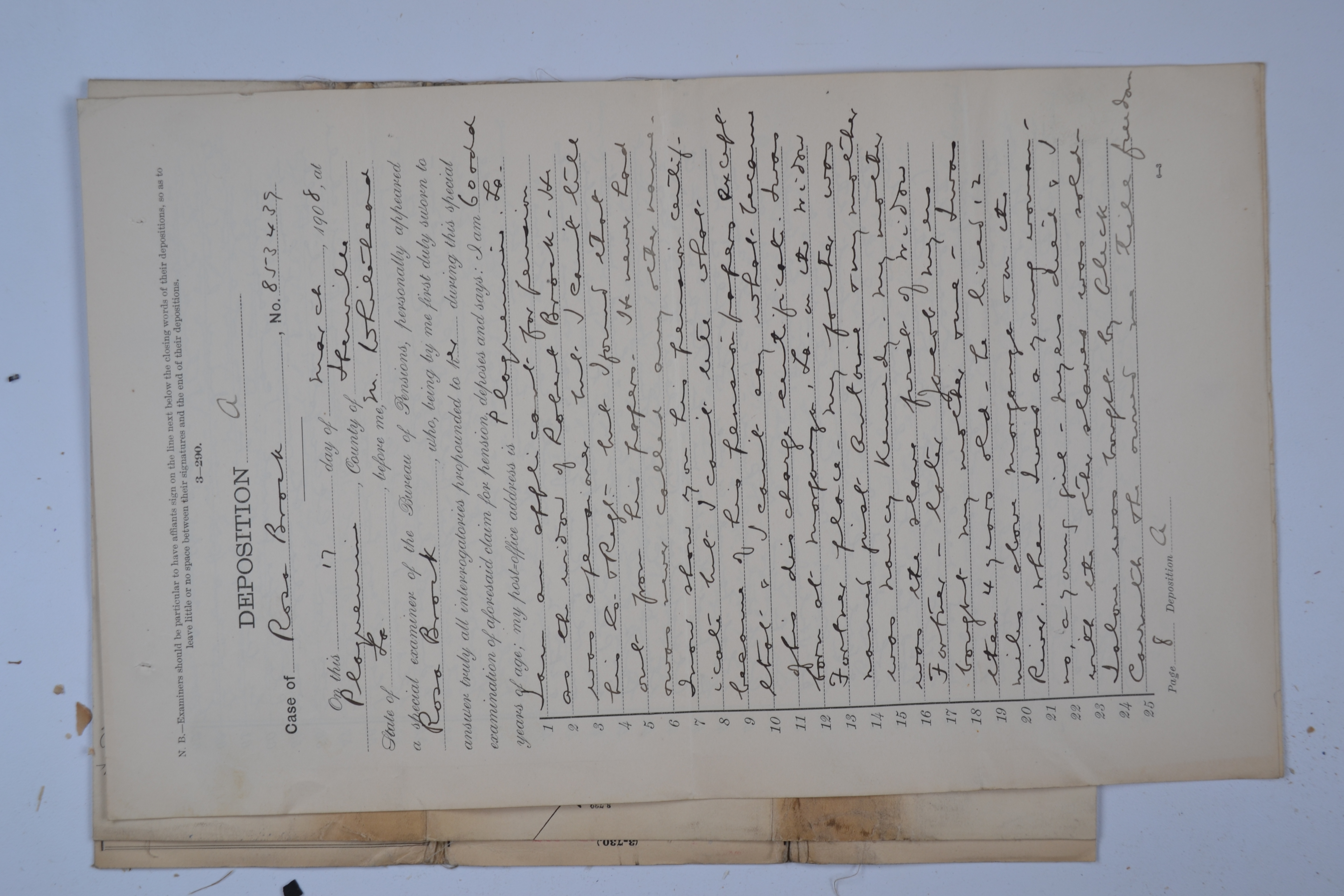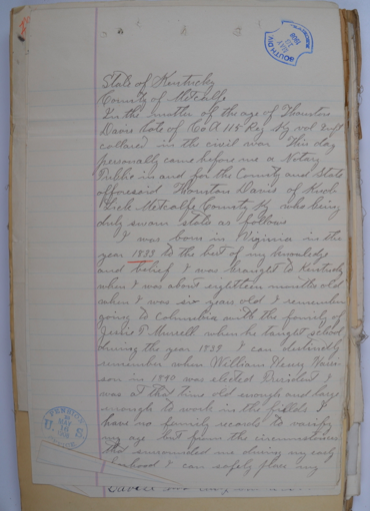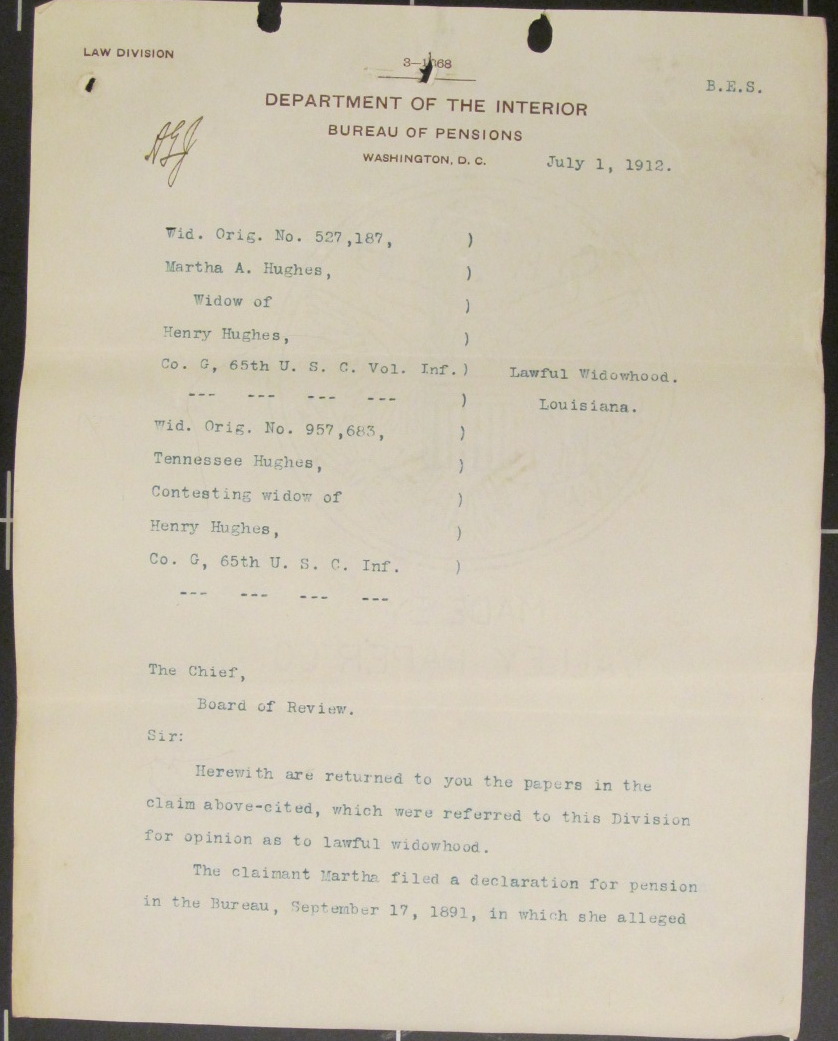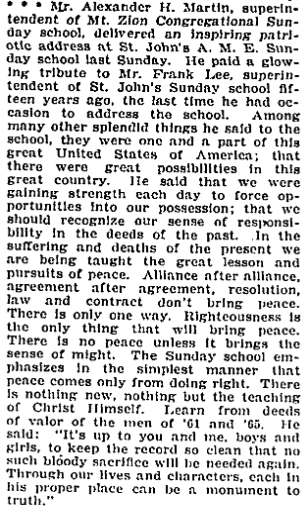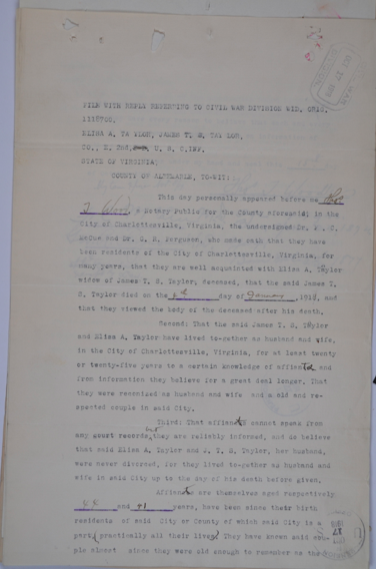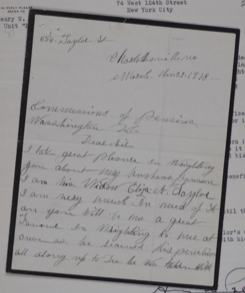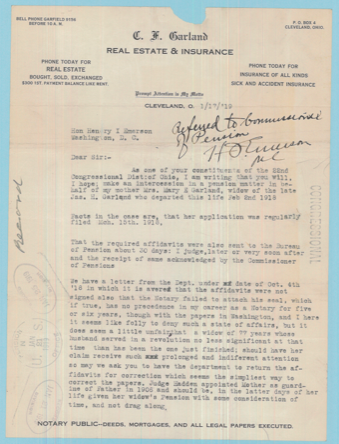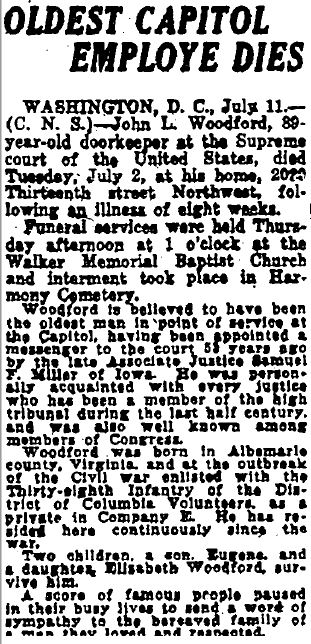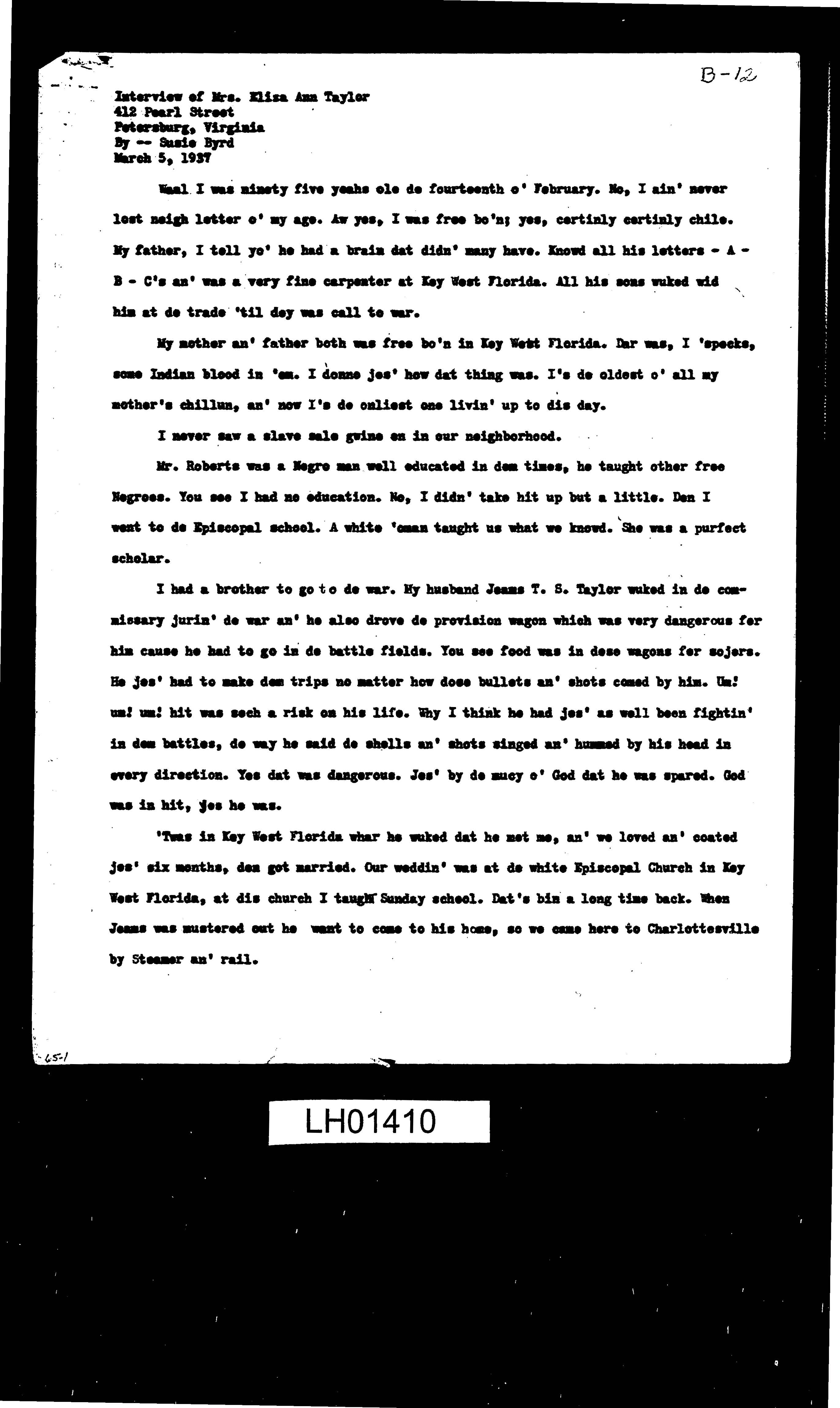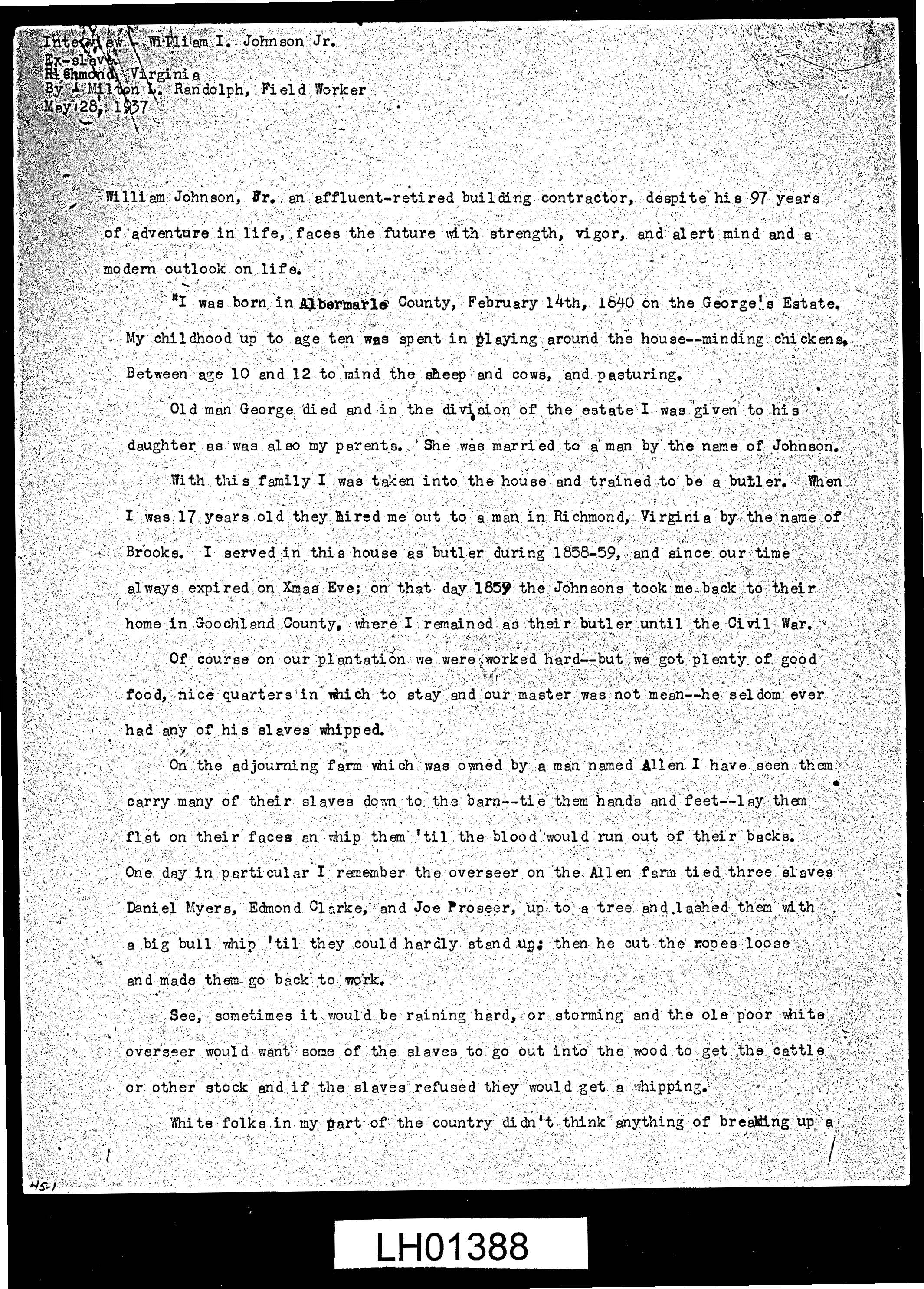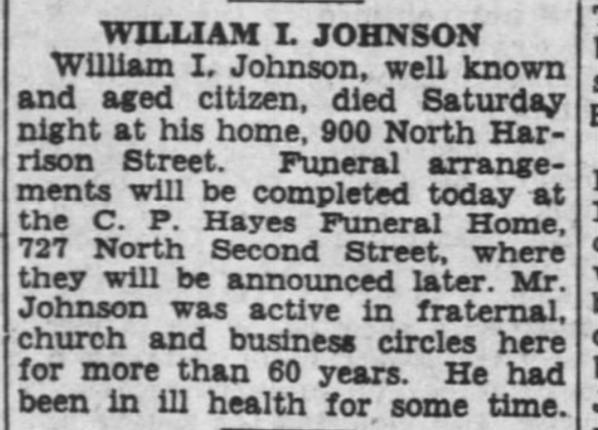Below are select examples of primary sources, presented with transcriptions, that were used in the writing of our project’s biographies and essays. In order to filter the documents, unclick the checkmark next to the types of documents (letters, pension records, medical records, newspaper articles, and other) that you do not want to see. Some documents may be listed under multiple categories (i.e. a letter printed in a newspaper). Document transcriptions can be searched for keywords by using the search bar in the site's header.
Partial Affidavit of Henry Kettell
Henry Kettell described his enlistment and subsequent service in an undated, incomplete affidavit.
The Liberator Article on Pandenarium Slaves
This article published in The Liberator described the movements of slaves recently set free by Dr. Charles D. Everett.
James T. S. Taylor Letter to Anglo-African
James T. S. Taylor wrote to the editor of the Anglo-African from Ship Island, Mississippi, describing his regiment's wartime experiences.
John Reed to Mary J. Reed
John Reed wrote a letter home to his mother updating her on his enlistment and various family friends.
James T. S. Taylor Letter to Anglo-African
James T. S. Taylor wrote to the editor of the Anglo-African describing his regiment's transfer from Ship Island, Mississippi, to Key West, Florida.
James T. S. Taylor Letter to Anglo-African
James T. S. Taylor wrote to the editor of the Anglo-African describing a battle against and subsequent capture of Confederate troops.
Alexander Jackson to His Aunt
Alexander Jackson wrote a letter to his aunt telling her that he is sending his pay home.
James T. S. Taylor to Abraham Lincoln
In late 1864, James T. S. Taylor wrote a letter to Abraham Lincoln explaining how he joined the USCT and asking him for his help.
James T.S. Taylor Letter to Anglo-African
James T. S. Taylor wrote to the editor of the Anglo-African describing life in the camp and questioning military policy not allowing black soldiers to be commissioned officers.
Testimony of William Jones
William and Marilda Jones gave testimony about running away from their master while still enslaved in hopes of obtaining some money stolen by the men who caught them.
James T. S. Taylor Letter to Anglo-African
James T. S. Taylor wrote to the editor of the Anglo-African to give an update on his regiment.
James T. S. Taylor at Virginia's 1868 Constitutional Convention
James T. S. Taylor served in Virginia's 1868 Constitutional Convention and introduced this resolution in favor of African American suffrage and secret ballots.
Testimony of Dicey Churchill and T. D. Yeager in the Pension of Peter Churchwell
Dicey Churchill and T. D. Yeager gave testimony to help secure a pension for Peter Churchwell's minor daughter, Harriet.
Pension Application and Testimony of Frances W. Evans, Mother of William Evans
William Evans's mother, Frances, gave testimony about the family's history in her application for a pension following her son's death.
Testimony of James Coleman on Behalf of Reuben Hammett
Fellow solider James Coleman testified on behalf of Reuben Hammett to prove when he served and that he died as a result of illness while in the army.
Testimony of Julia Churchwell
Julia Churchwell gave information about her husband's first marriage and pension.
Testimony of Martha Cousins on behalf of Mary J. Reed
Martha Cousins gave testimony on the lives of John and Mary Reed in order to help Mary secure a widow's pension.
Wilson M. Evans Pension Testimony, Part 1
In this first part of his pension testimony, Wilson M. Evans describes the chronic head and ear conditions he contracted during the Civil War.
Testimony of Former Slaveholder of Cleave Wood
Mrs. Lavinia S. Marmaduke and Mrs. Sarah M. Yerby gave testimony about the marriage of Cleave Wood and Harriet Marmaduke.
Wilson M. Evans Pension Testimony, Part 2
In this second part of his testimony, Wilson M. Evans testifies about the doctors who treated his chronic disabilities resulting from the Civil War.
Testimony of John Henry Barber's Mother, Elmira
John Henry Barber's mother, Elmira, shared details about her life and that of her son in order to obtain a pension following his death.
Witness Testimony on Behalf of Joseph H. Thomas
USCT veteran John D. Richardson testifies on behalf of his comrade, Joseph H. Thomas, who was seeking a pension after the Civil War.
A Letter from Wilson M. Evans's Attorney
An exasperated letter from Wilson M. Evans's attorney to the pension office, arguing that more than enough evidence had been submitted to decide Evans's case.
Jesse S. Cowles Raises Money for Grant Monument Association
In this letter, Jesse S. Cowles provides the Grant Monument Association with $15, which his congregation had raised to help build President Ulysses S. Grant's mausoleum.
Jesse S. Cowles Joins Grant Monument Committee
In this letter, Jesse S. Cowles accepts an appointment on the Grant Monument Committee, which was tasked with constructing President Ulysses S. Grant's mausoleum.
Description of Jesse Cowles's Work as a Minister
This article from the Cleveland Gazette described the work that Jesse Cowles did as a minister with the Zion A.M.E. Church in New York.
Testimony of William Holly
William Holly gave testimony about his service and war-related health issues in order to secure a pension.
Testimony of Nancy Douglas, former wife of Manuel Price
Nancy Douglas gave detail about her life and that of Manuel Price in order to obtain a widow's pension.
James H. Garland Testimony
In his pension testimony, James H. Garland gave details about his life before, during, and after the war.
Testimony of George W. Lewis on Behalf of James H. Garland
Fellow soldier George W. Lewis testified on behalf of James H. Garland as regards his wartime service and inability to work due to illness contracted during that time.
Testimony on Behalf of Robert Carter's Mother, Lucy Jackson
Lucy Jackson, dependent mother of Robert Carter, and Spencer Scott testified in order to secure a pension for Jackson.
Pension Testimony of Jackson Hickenberger
Jackson Hickenberger testifies about the illness and resulting disability he contracted while in the service with the 68th USCT.
Henry Armstrong's Wound Testimony vs. Medical Diagnosis
Henry Armstrong's description of his wound was compared to a medical examination performed to determine whether his injury merited a pension increase.
Testimony of Louisa Walker
Louisa Walker shared details about her life and that of her husband Adam Walker with a special examiner in order to obtain a widow's pension.
Testimony of Mr. J. M. Wright on Behalf of John Woodford
Mr. J. M. Wright's gave testimony on behalf of John Woodford describing Woodford's medical issues and need for a pension.
Testimony of Prince Bradford
Prince Bradford gave testimony about his life in order to secure a pension.
Testimony of Captain John B. Nixon on behalf of Prince Bradford
Captain John B. Nixon described Prince Bradford's wartime service under him in order to help Bradford obtain a pension.
Funeral of Nancy Cowles
In this funeral notice, The York Daily paid tribute to Nancy Cowles, celebrating her "christian courtesy" and her "ceaseless work in the cause of Christ."
Funeral of Jesse S. Cowles
Jesse S. Cowles's well-attended funeral was described in The Gazette, a local paper printed in York, Pennsylvania.
Testimony of Alexander Andrews
Alexander Andrews gave the details of his marriage to Lizzie Andrews as part of his pension testimony.
Testimony of John Battles on behalf of James T. Battles
John Battles testified regarding his brother James T. Battles's medical history as part of a pension application.
Testimony of James T. Battles
James T. Battles gave a detailed account of his medical and military history in order to secure a pension.
Testimony of Patrick H. Atkinson
Patrick H. Atkinson detailed his wartime service in order to obtain an increase on his pension.
Death of Rev. Jeremiah Walker
A Chillicothe Gazette article detailed the events of Jeremiah Walker's death at a train station.
Remains of Jeremiah Walker Sent Home
An article published in the Chillicothe Gazette described the return of Jeremiah Walker's remains home to his family after he died suddenly at a train station.
Obituary for Jeremiah Walker
Obituary for Jeremiah W. Walker published in the Chillicothe Gazette.
Testimony of Peter Churchwell
Peter Churchwell gave testimony about his life in order to secure a pension.
Testimony of Hannah Spears
Hannah Spears gave testimony about her marriage to William Spears in order to secure a widow's pension.
Obituary for Joseph Carr
Joseph Carr's obituary in a local Iowa newspaper recalled his service during the Civil War and membership in the Grand Army of the Republic.
Pension Questionnaire for Alexander Caine
While applying for his pension, Alexander Caine had to complete this questionnaire revealing details about his life before the war, his service in the navy, and his occupation and residence after he left the service.
Special Examiner's Report, William Spears Pension
The special examiner for the Pension Bureau reported to the Commissioner of Pensions on whether William and Hannah Spears were married and whether her claim is valid.
Alexander Caine Pension, Naval Medical Log
The Surgeon General of the Navy wrote to the Commissioner of Pensions with Alexander Caine's medical history in the service.
Testimony of Frank Lee
In his pension testimony, Frank Lee explained why there is no record of his birth.
Last Will and Testament of Frank Lee
The last will and testament of Frank Lee, veteran of the 5th Massachusetts Colored Cavalry.
Warner Carter to the Commissioner of Pensions, November 13, 1905
Warner Carter wrote a letter to the commissioner of pensions asking that his wife stop receiving a portion of his pension.
Testimony of Rosa Brock
Rosa Brock, wife of Robert Brock, testified for a widow pension after the death of her husband.
Testimony of Thornton Davis
Thornton Davis gave testimony about his early life in order to secure a pension.
Conflicting Widow Claims, Henry Hughes Pension
The Pension Bureau investigated conflicting claims of two women who both stated they were the lawful widow of Henry Hughes.
Tribute to Frank Lee, Chicago Defender
The Chicago Defender published this tribute to Frank Lee given by Mr. Alexander H. Martin.
Funeral Notice for Alexander Caine
A very short funeral notice for former Union sailor Alexander Caine.
Testimony of Dr. F. C. McCue and Dr. G. R. Ferguson on behalf of Eliza Taylor
Dr. F. C. McCue and Dr. G. R. Ferguson testified on behalf of Eliza Taylor in order to help her secure a widow's pension.
Letter from Eliza Taylor to the Pension Commissioner
Eliza Taylor wrote to the Commissioner of Pensions about her husband's death and securing a widow's pension.
Charles Garland Letters on behalf of his mother's widow's pension
Charles Garland wrote letters in order to help his mother obtain a widow's pension.
John Woodford Obituary
An obituary for John Woodford from the Pittsburgh Courier briefly described his war service and post-war work at the United States Supreme Court.
WPA Slave Narrative Testimony of Eliza Ann Taylor
In 1937, Eliza Ann Taylor, widow of James T. S. Taylor, gave the story of her life to a Works Progress Administrator (WPA) interviewer.
WPA Slave Narrative Testimony of William I. Johnson
In 1937, 97 year-old veteran William I. Johnson told the story of his life to a Works Progress Administration (WPA) interviewer.
Obituary of William I. Johnson
The Richmond Times Dispatch published this obituary for William I. Johnson in January 1938.

